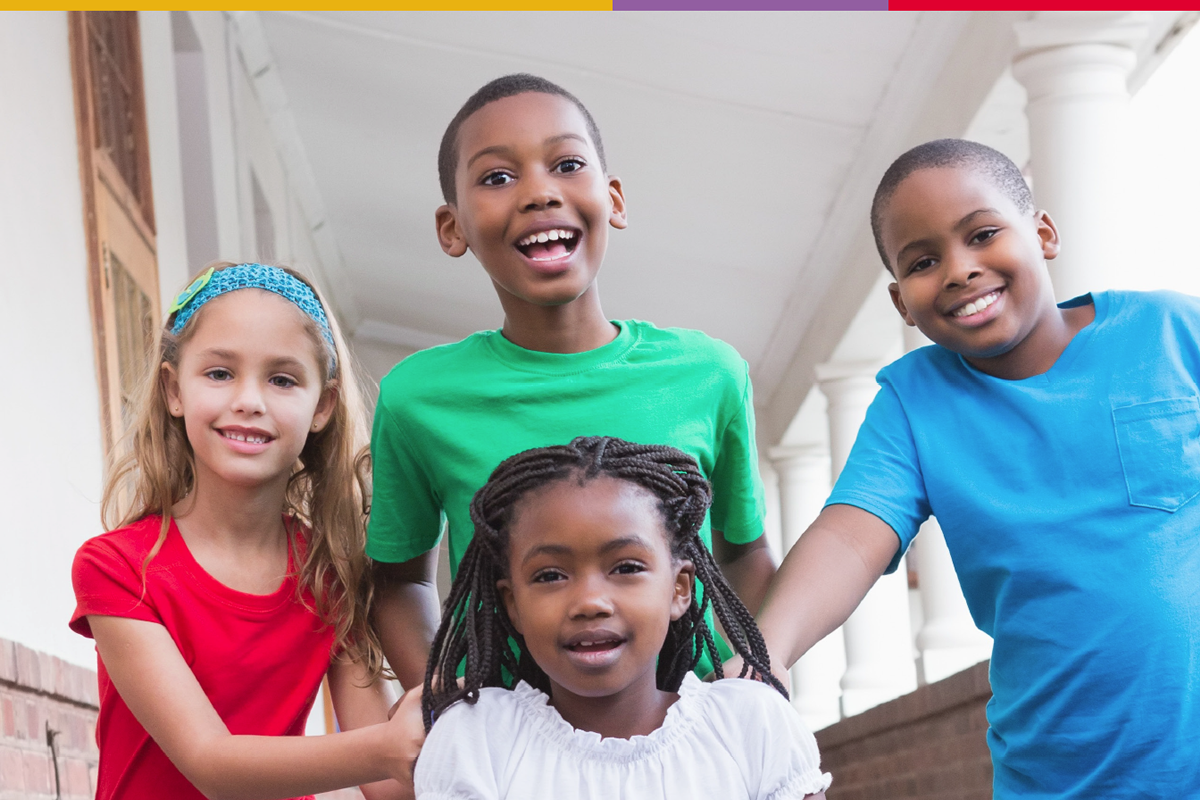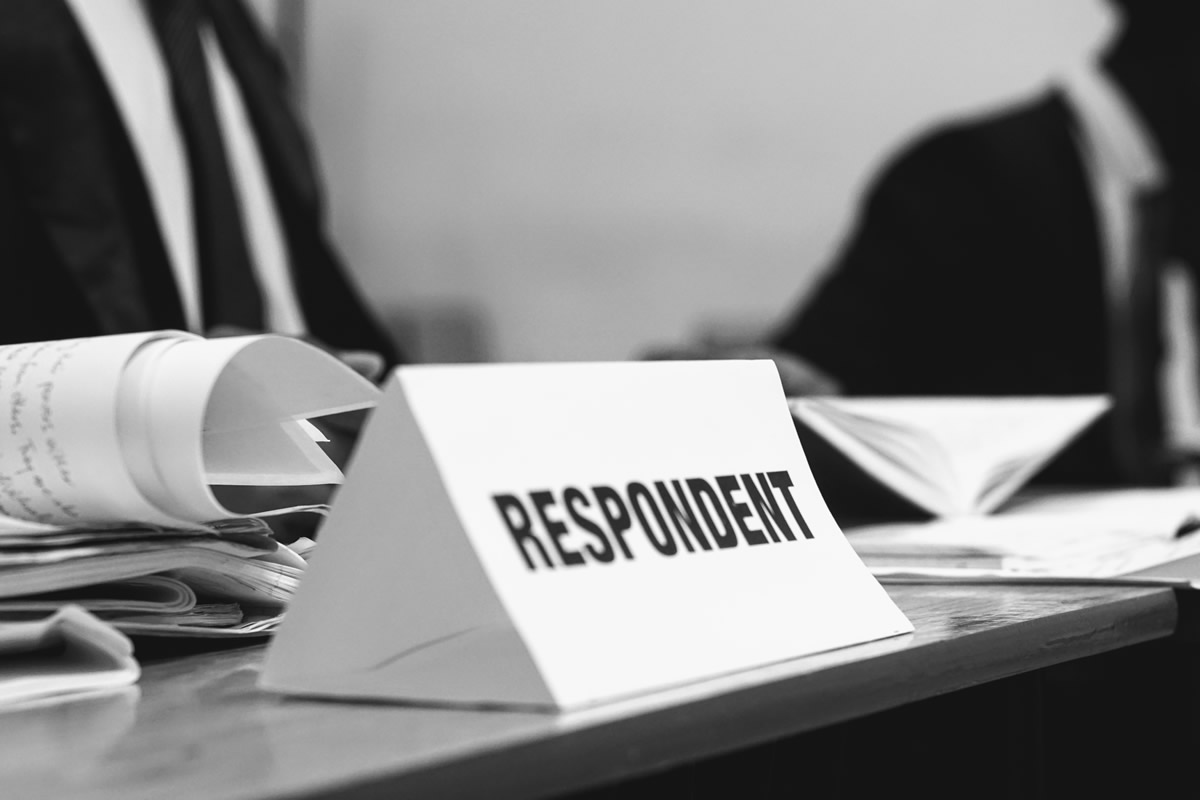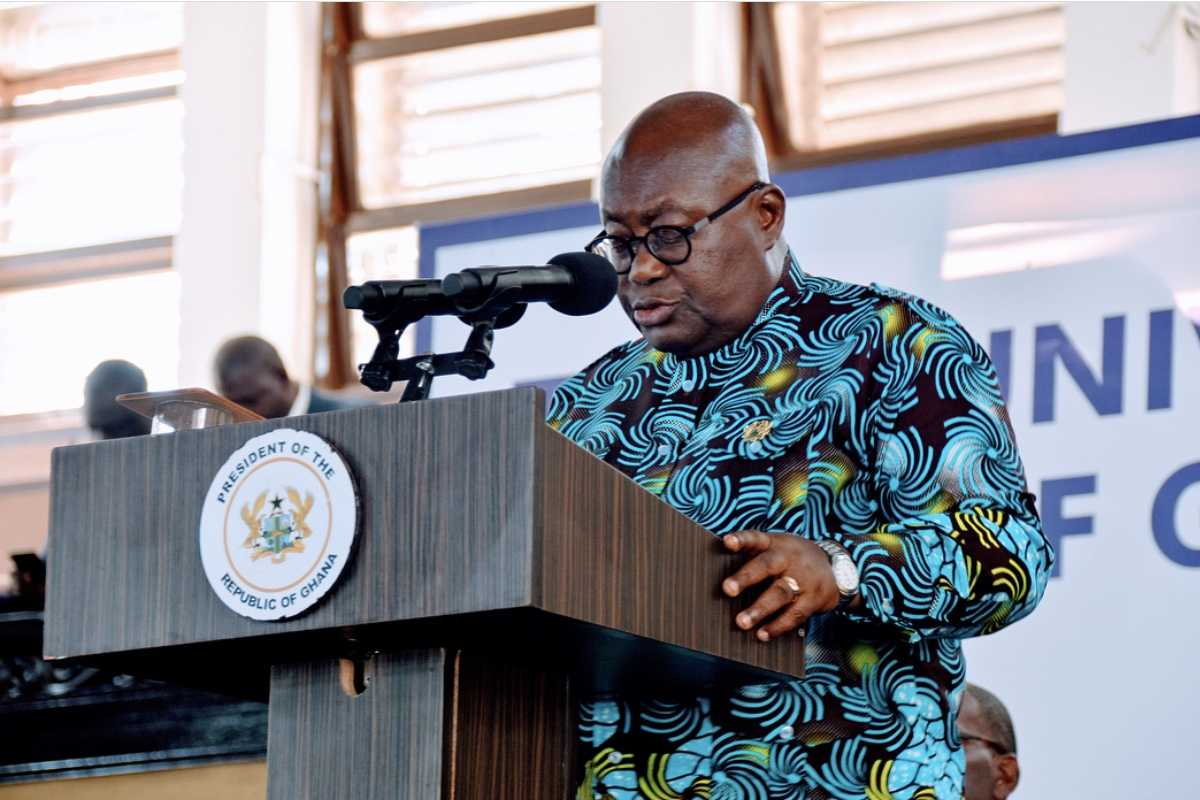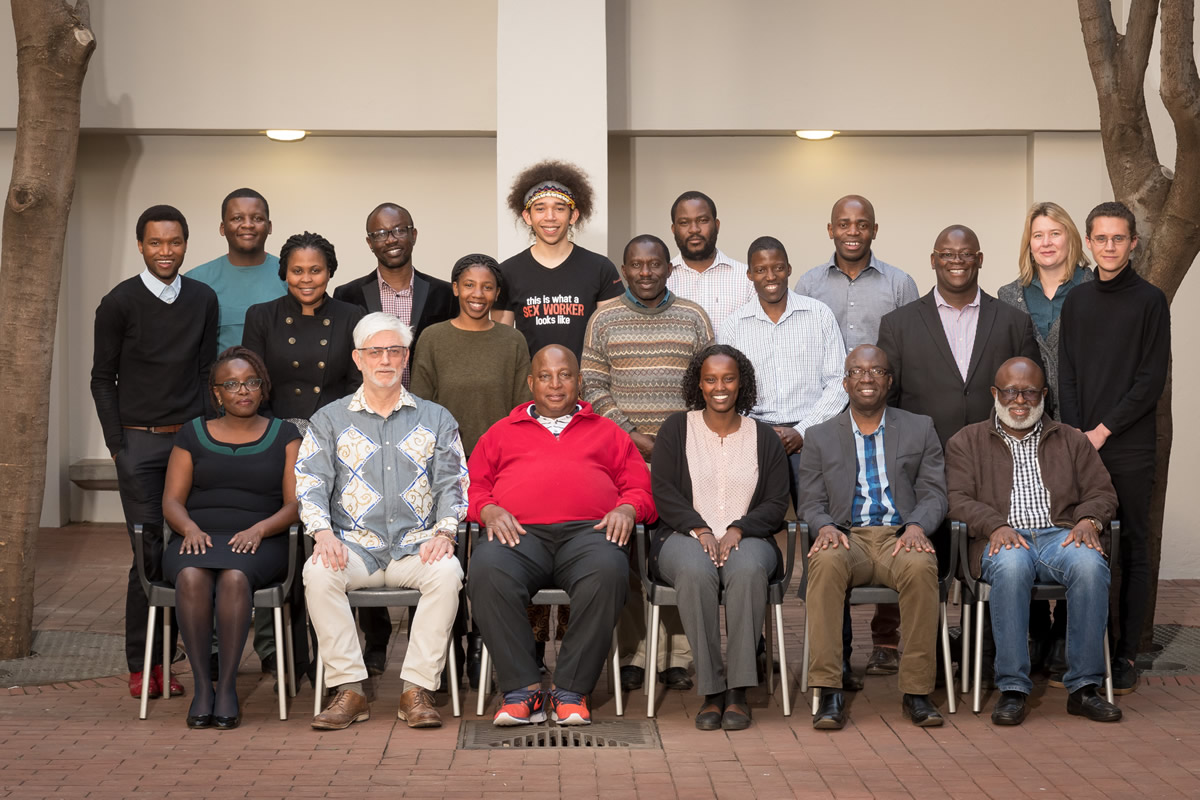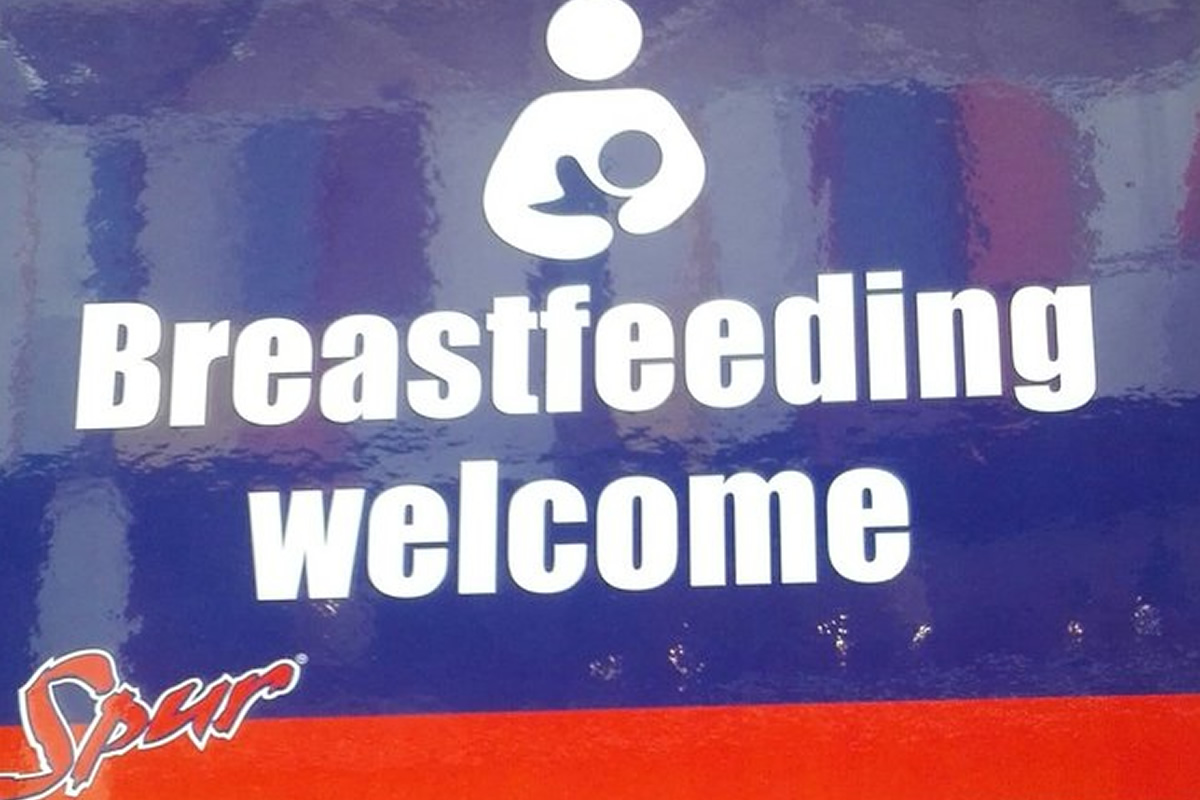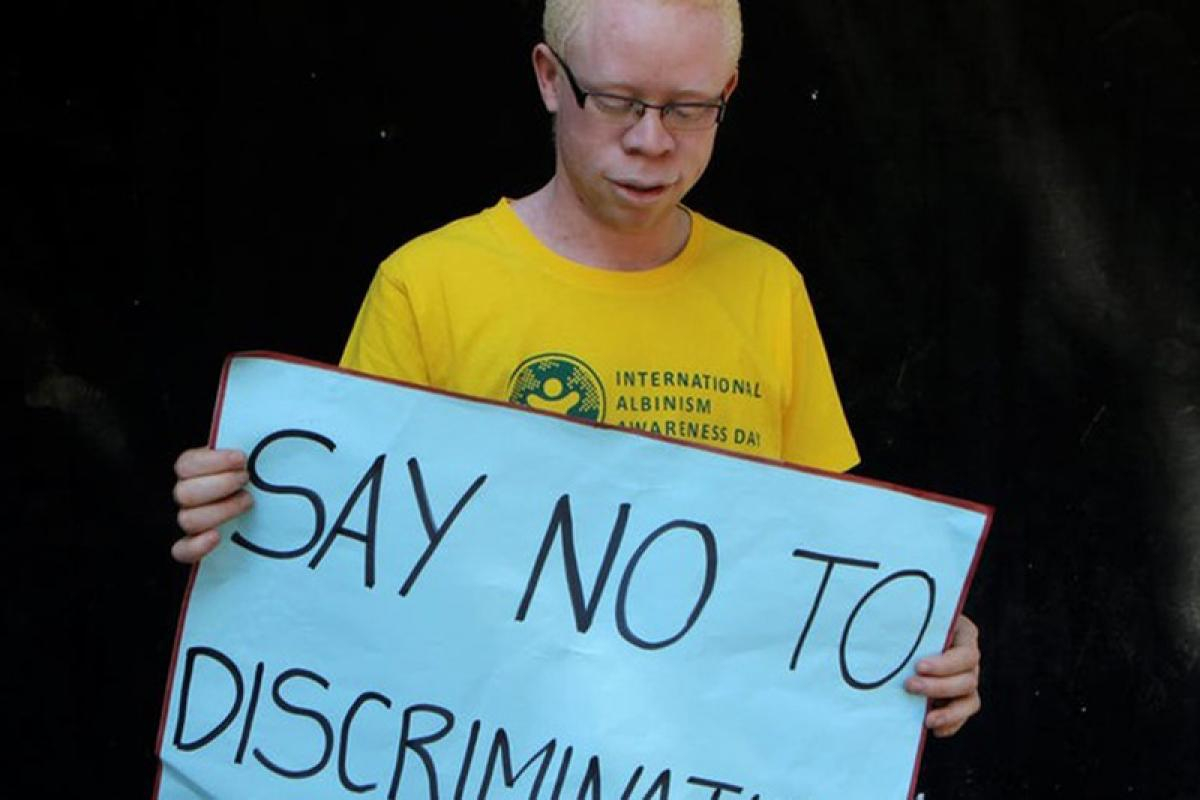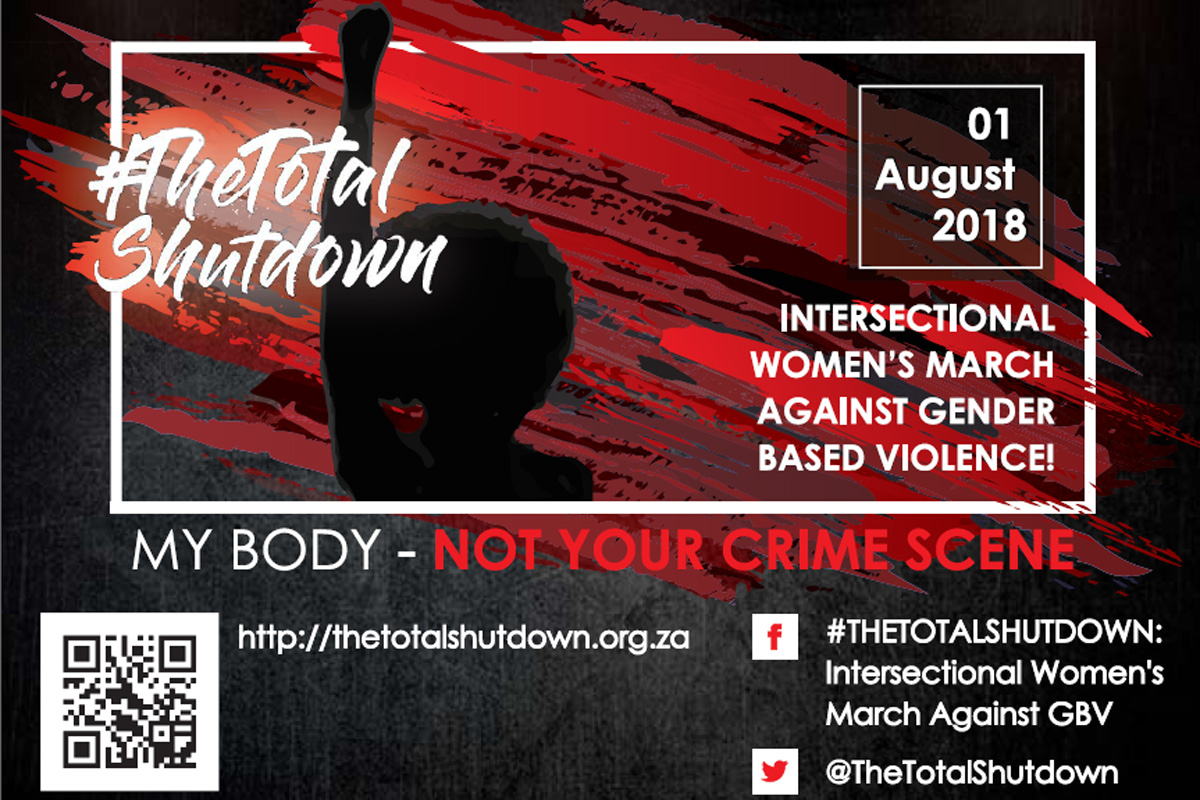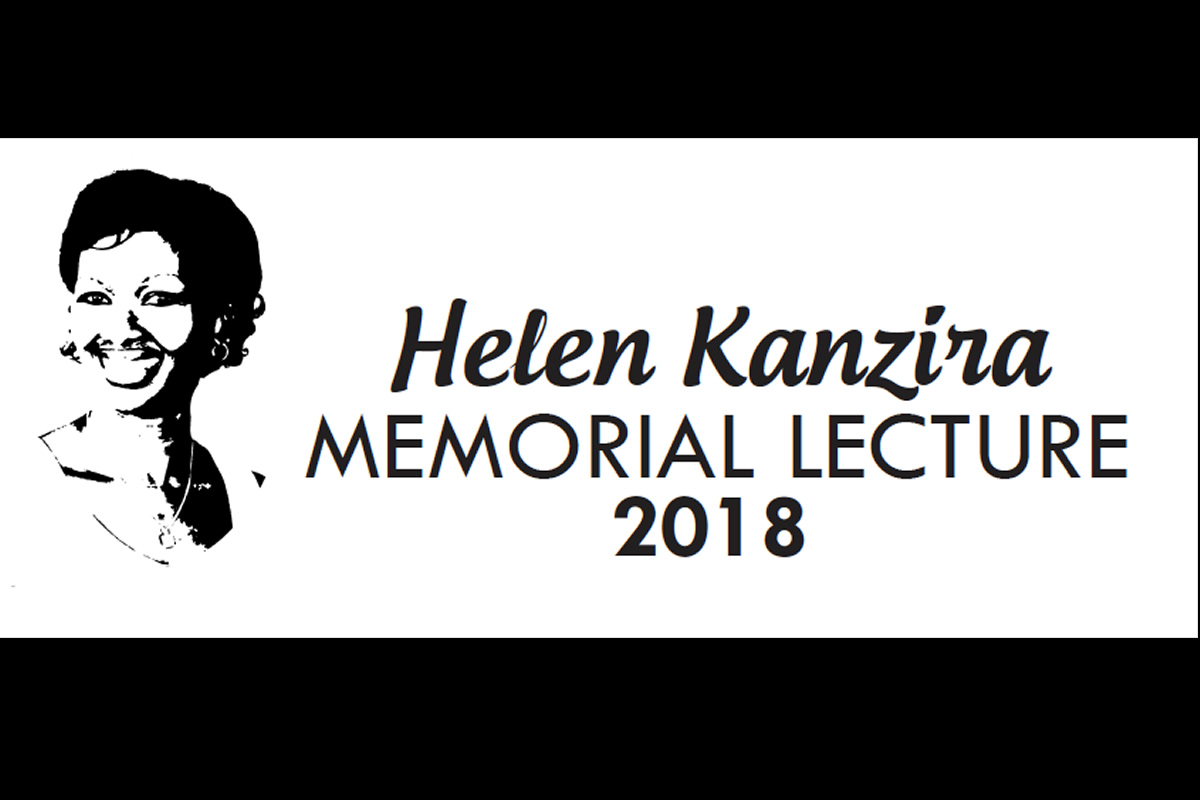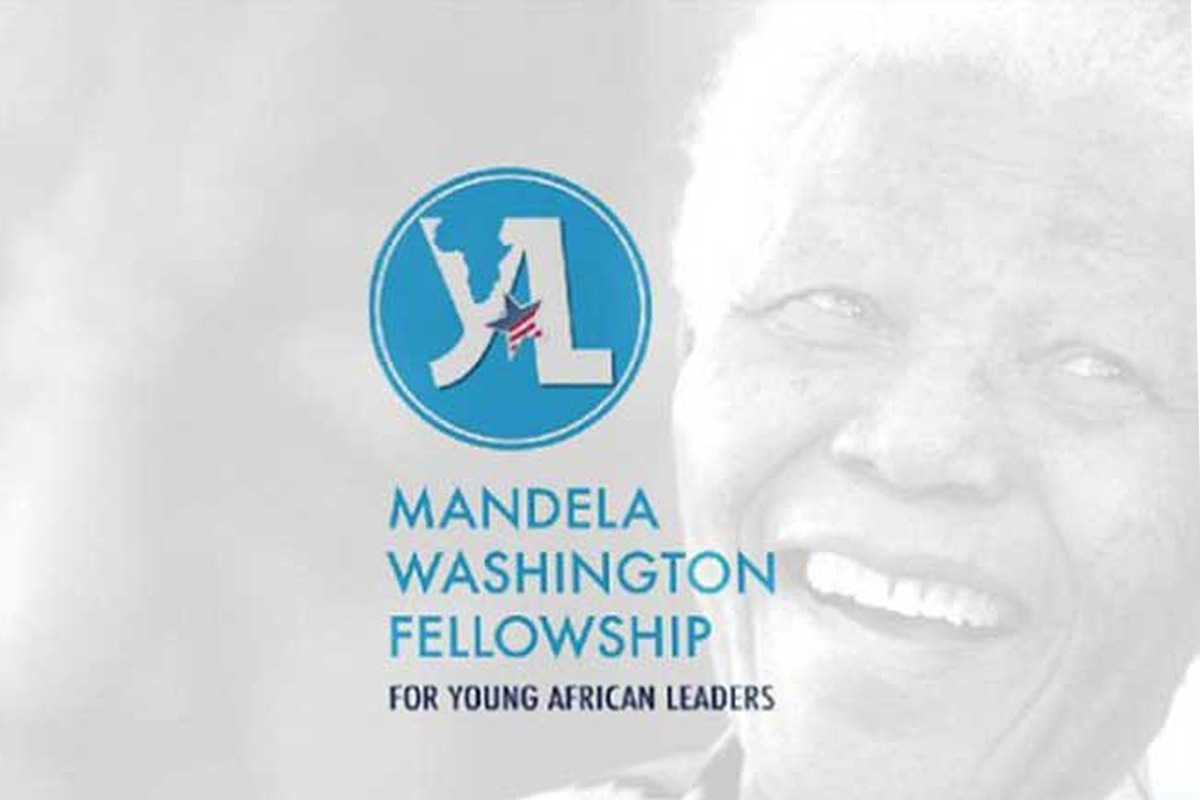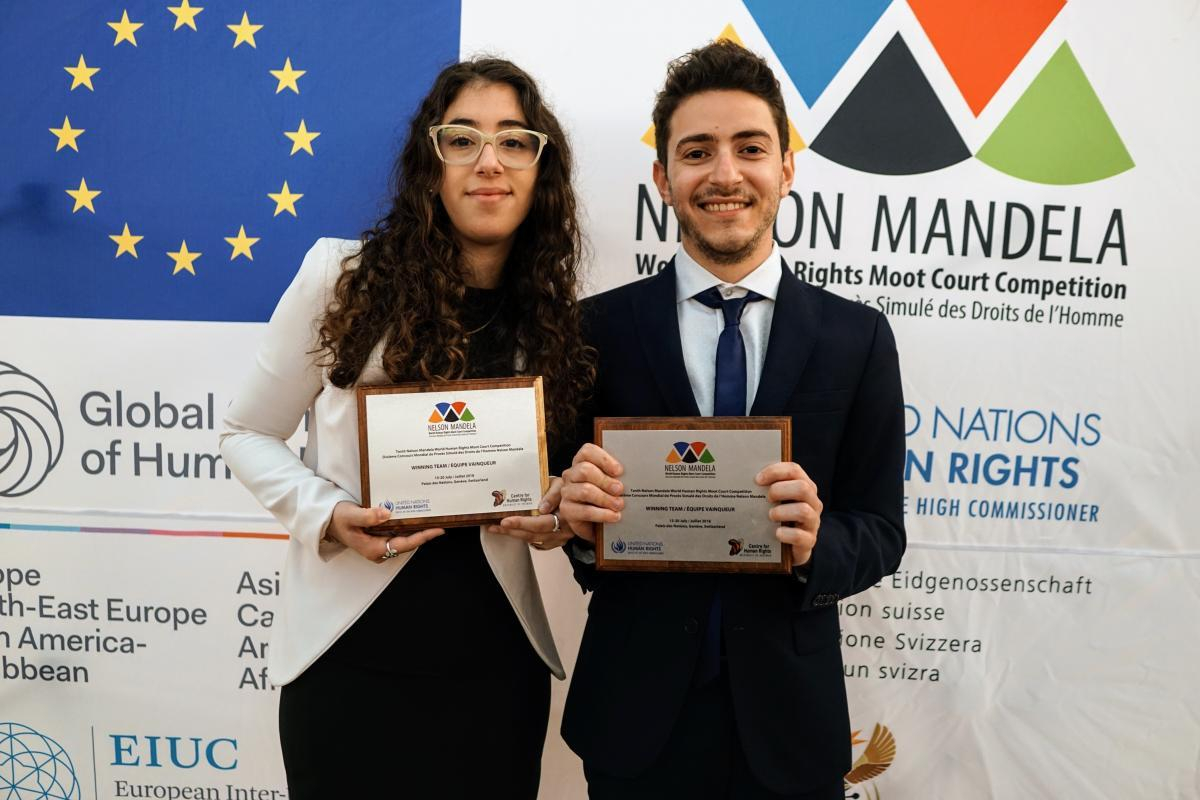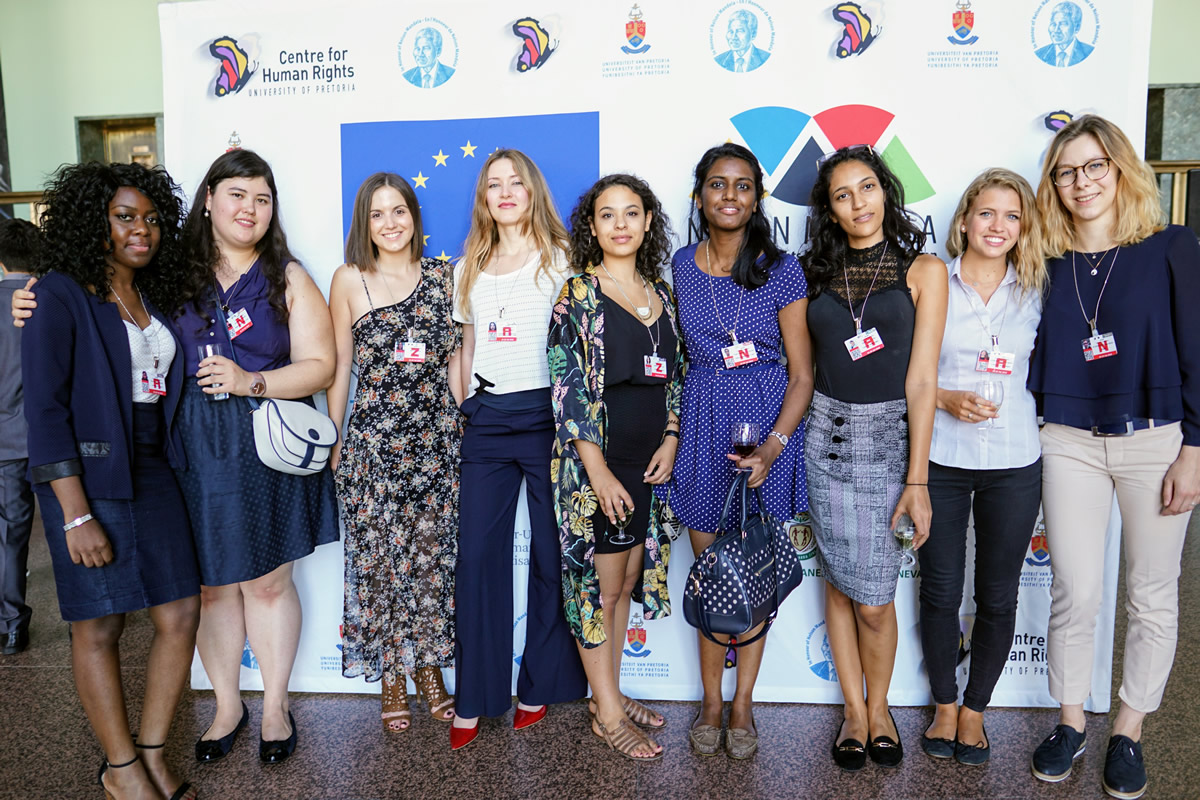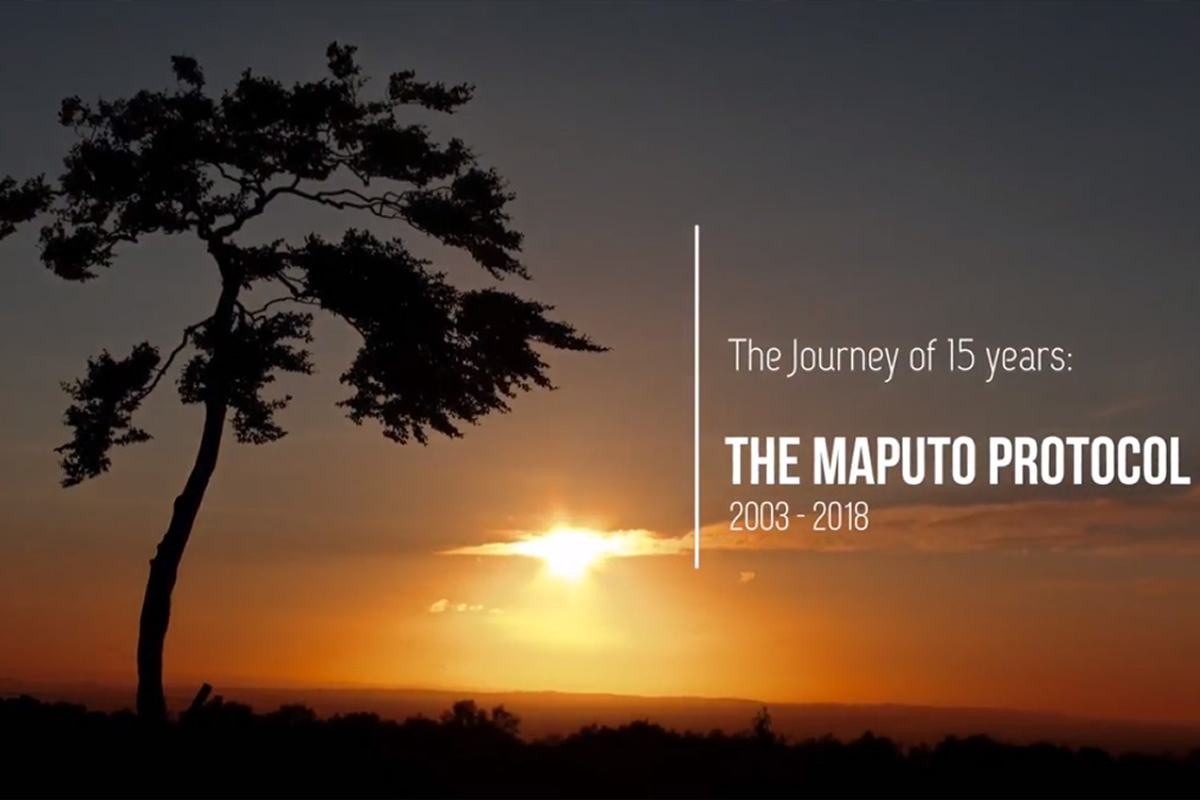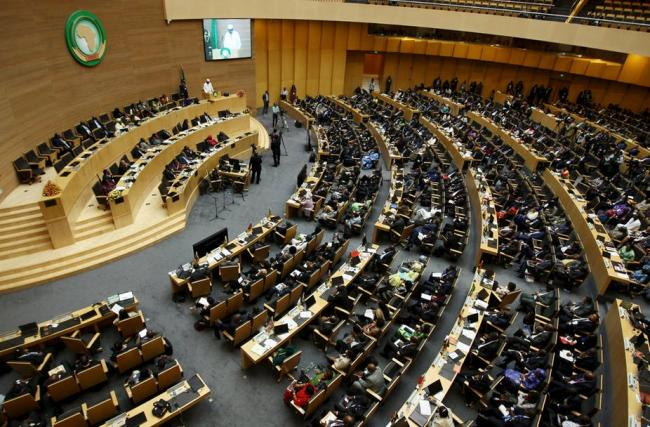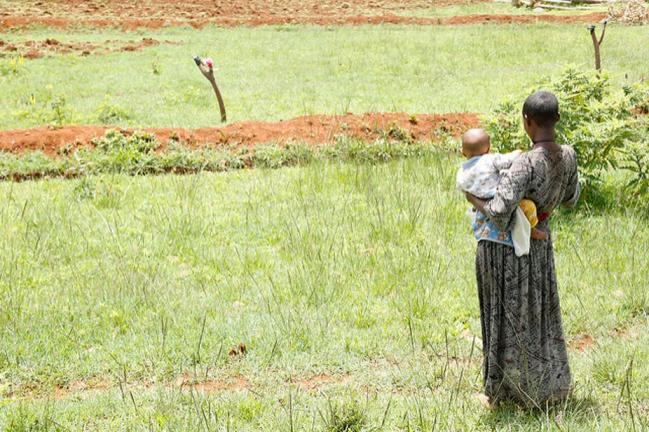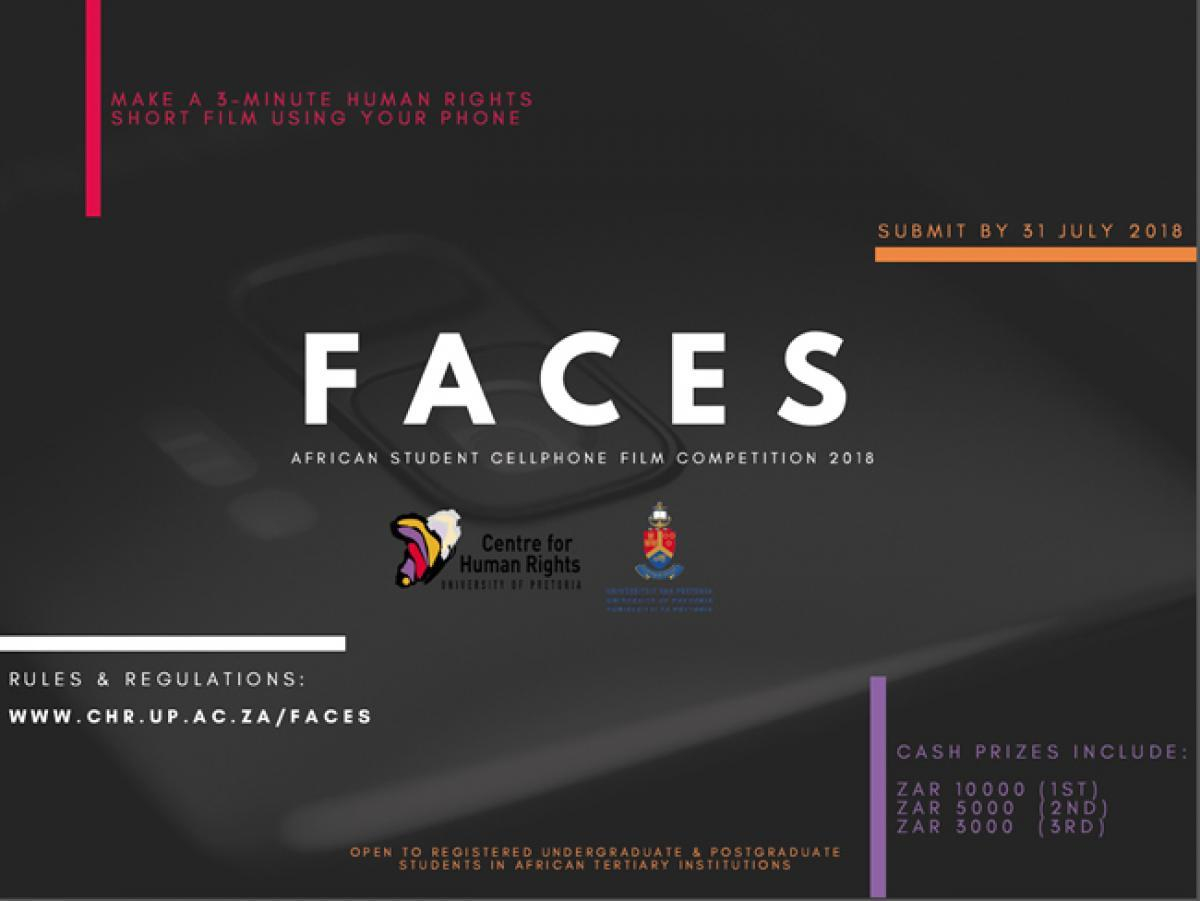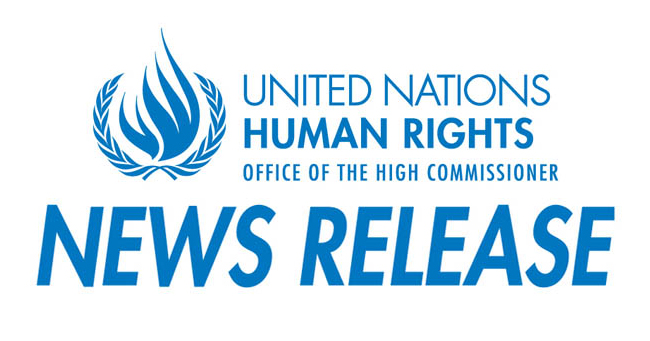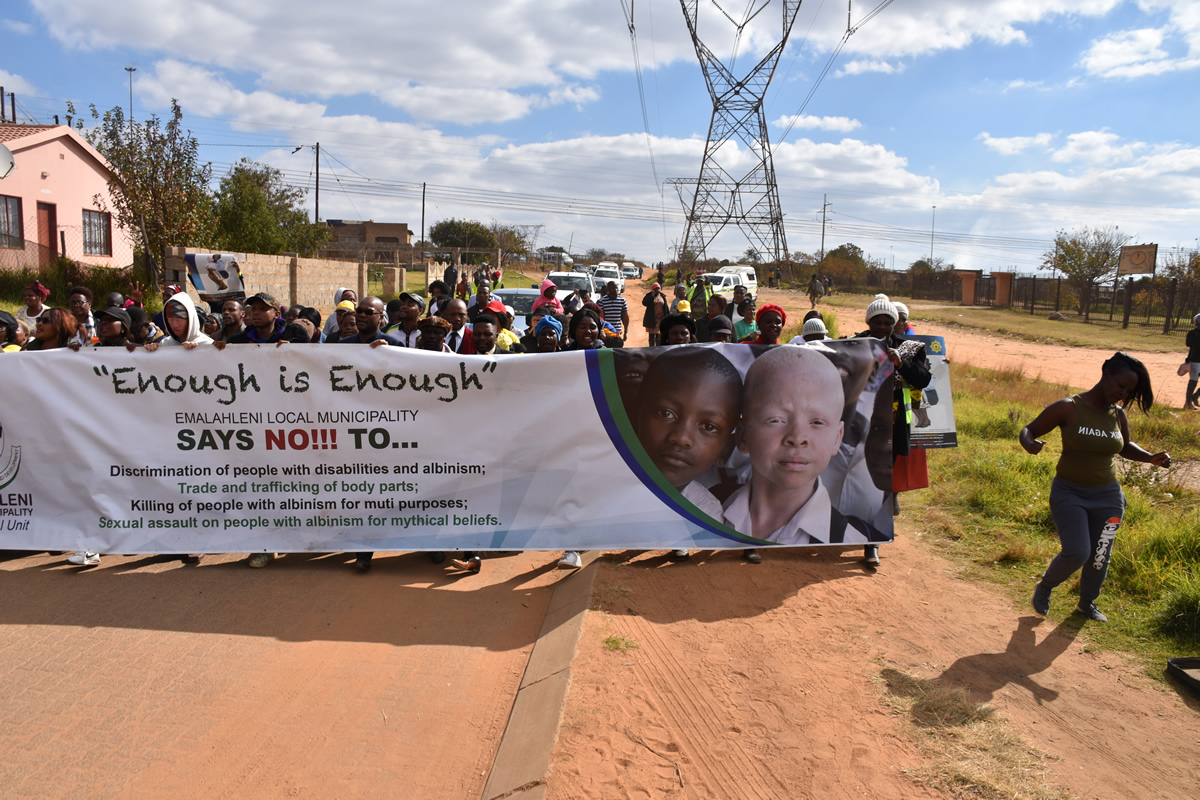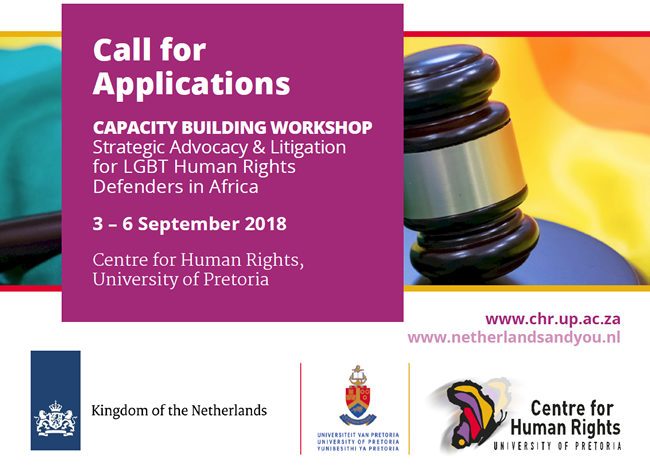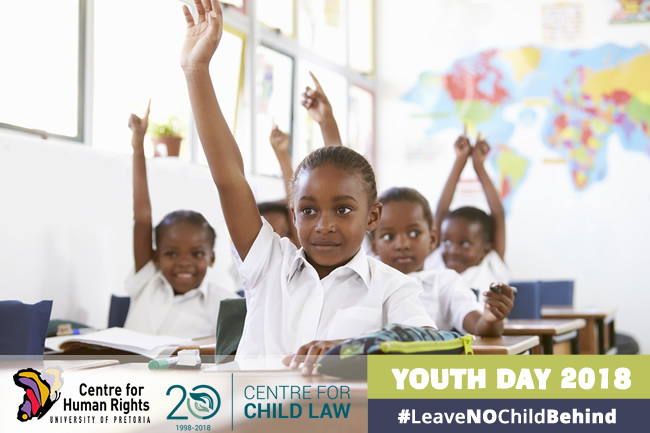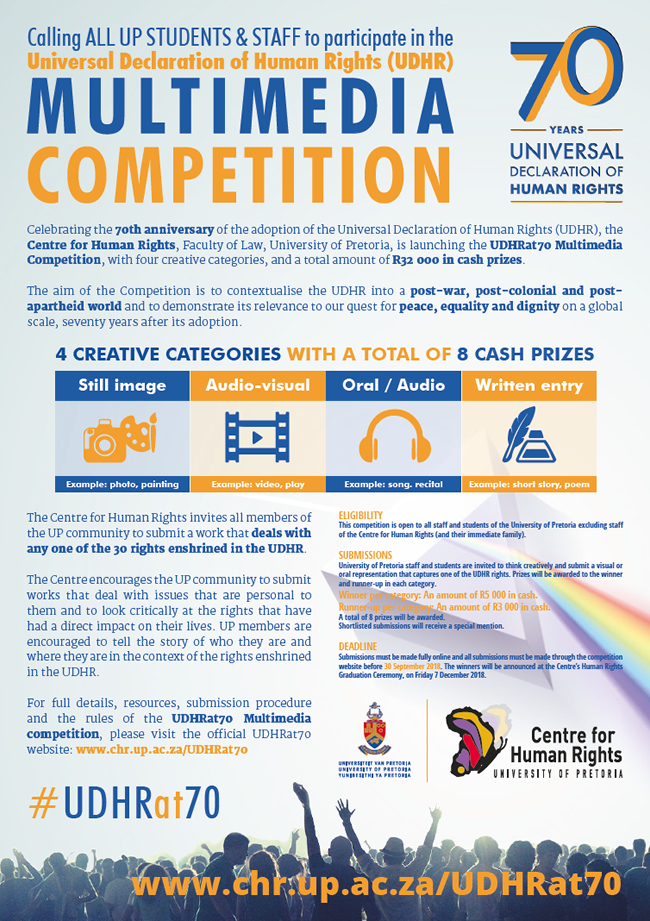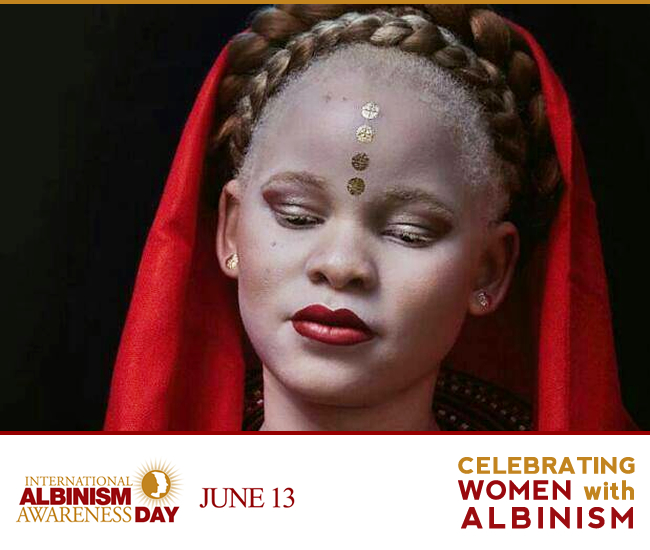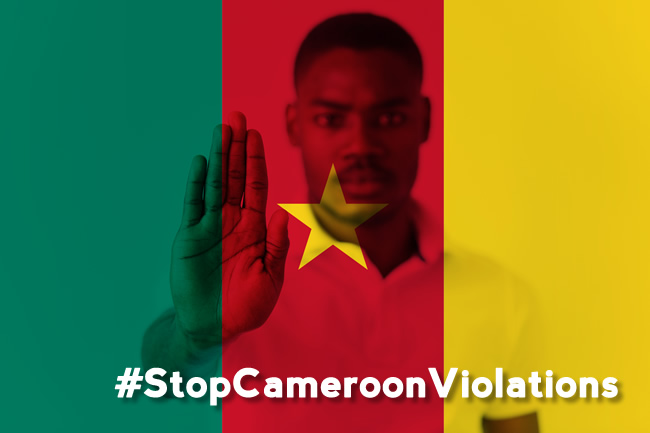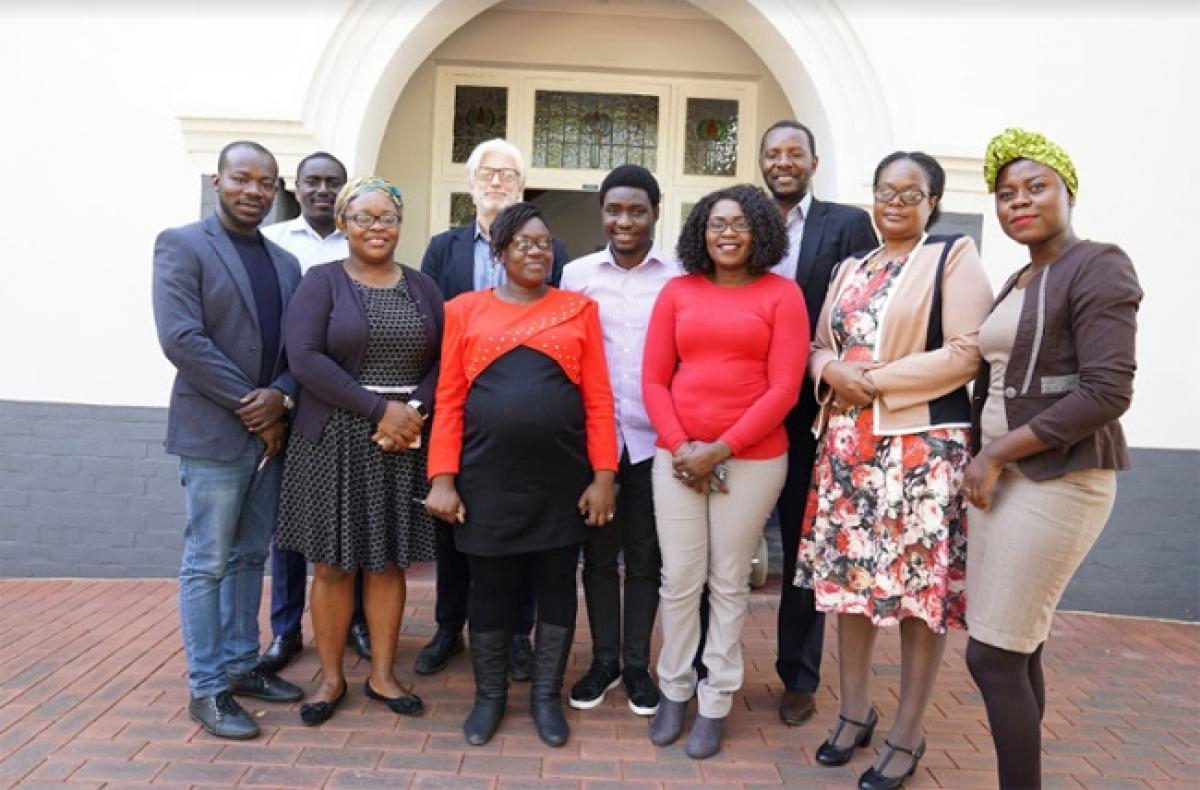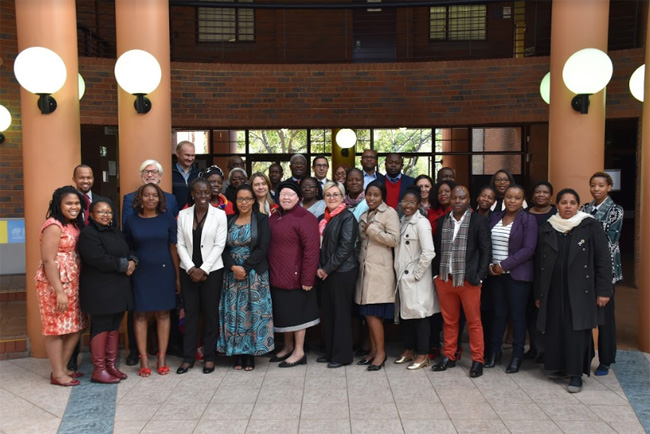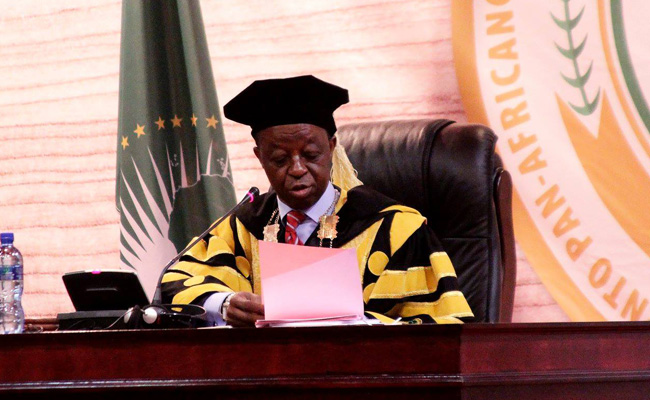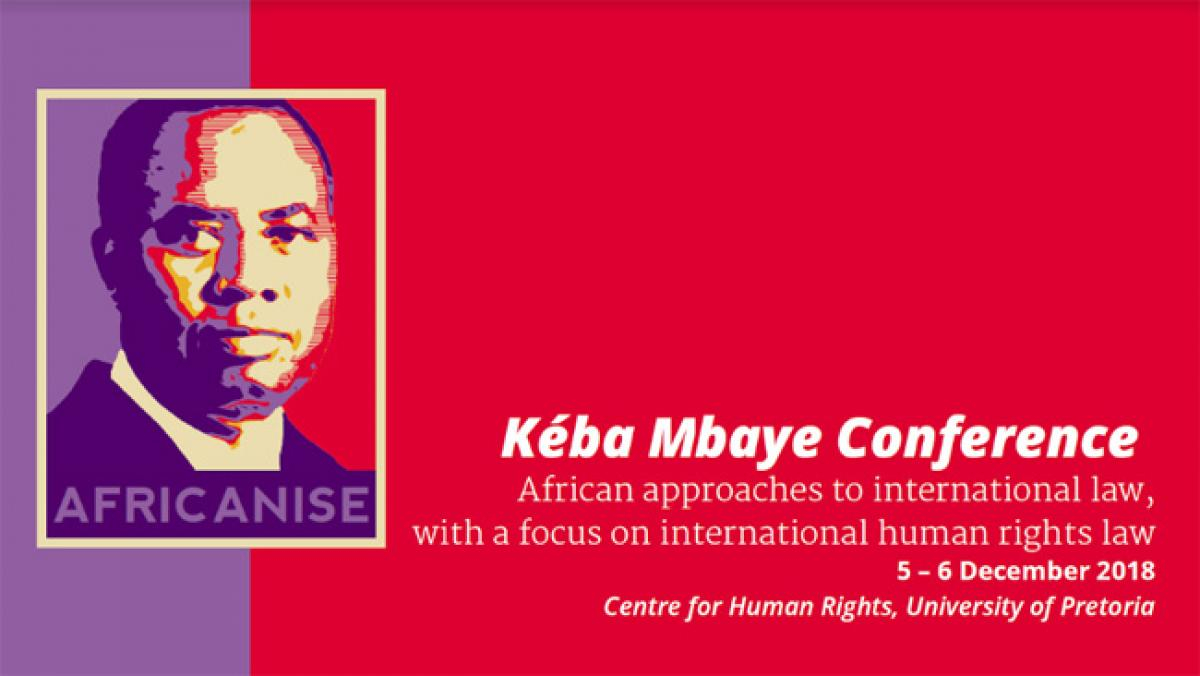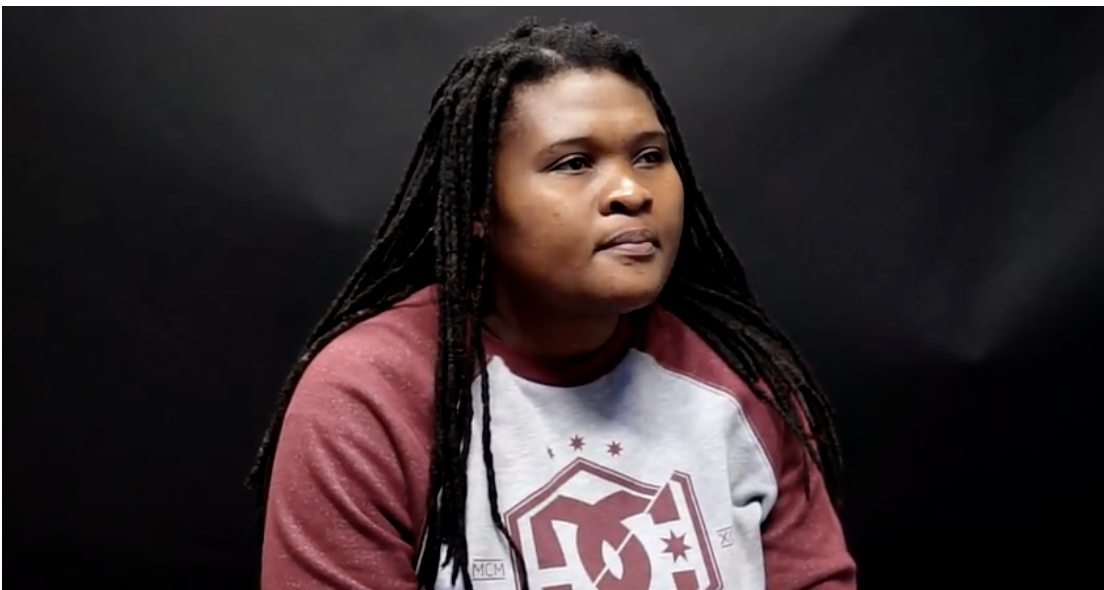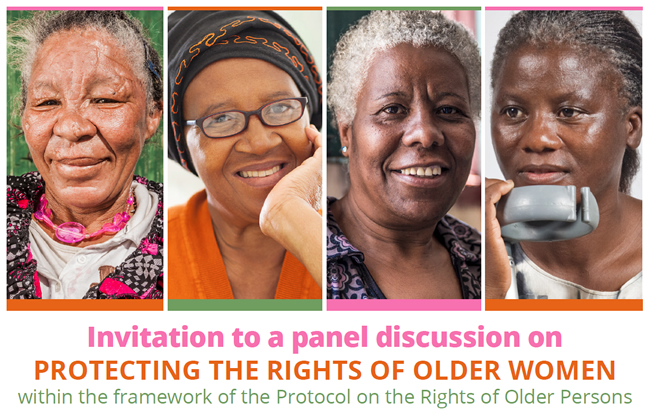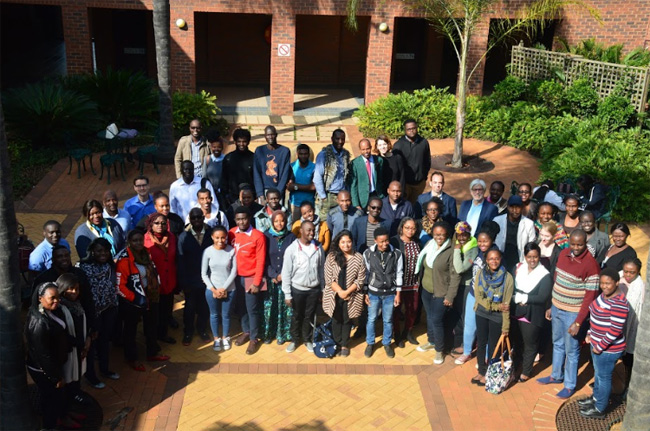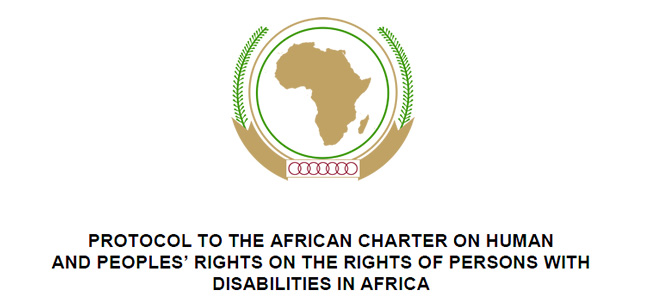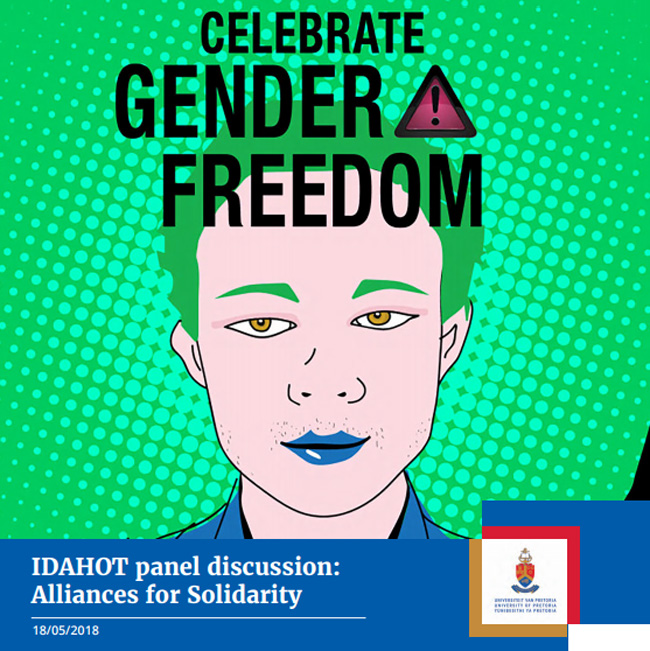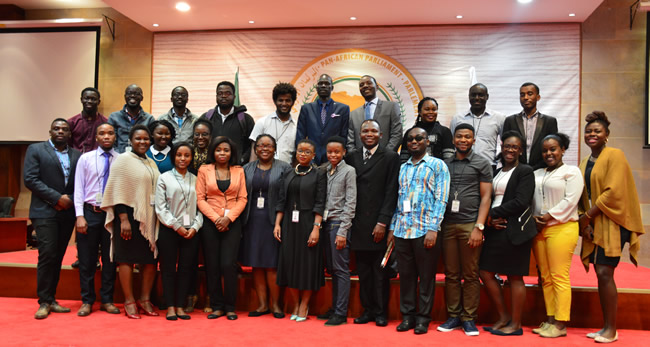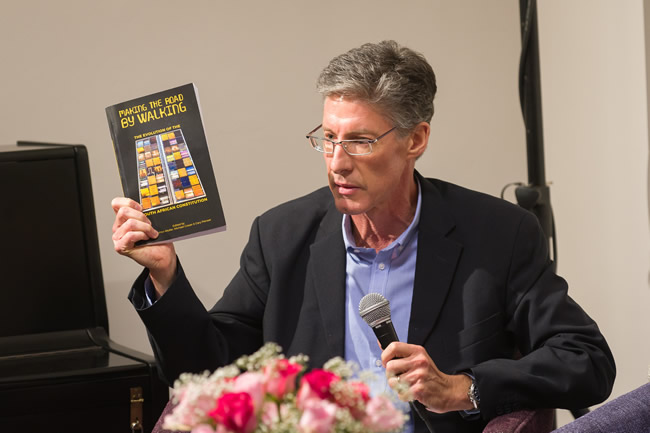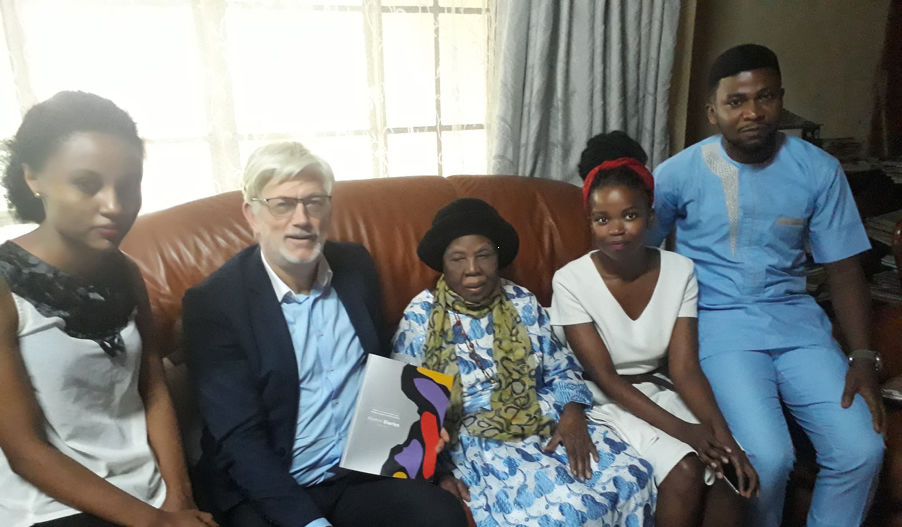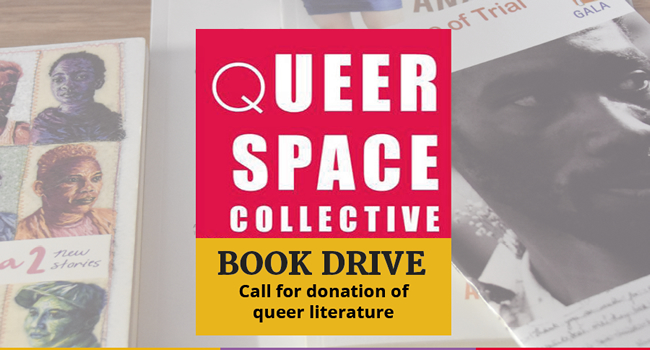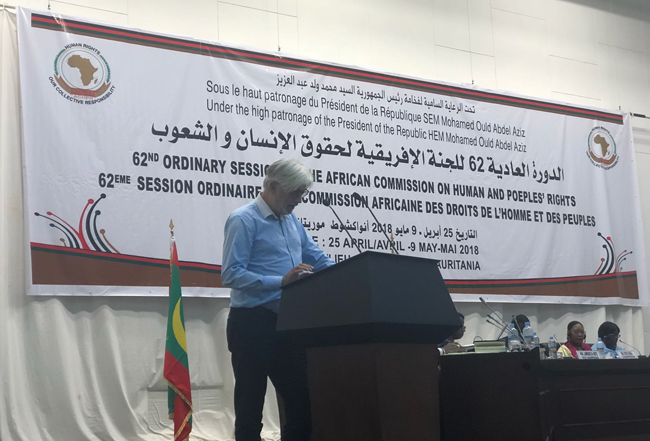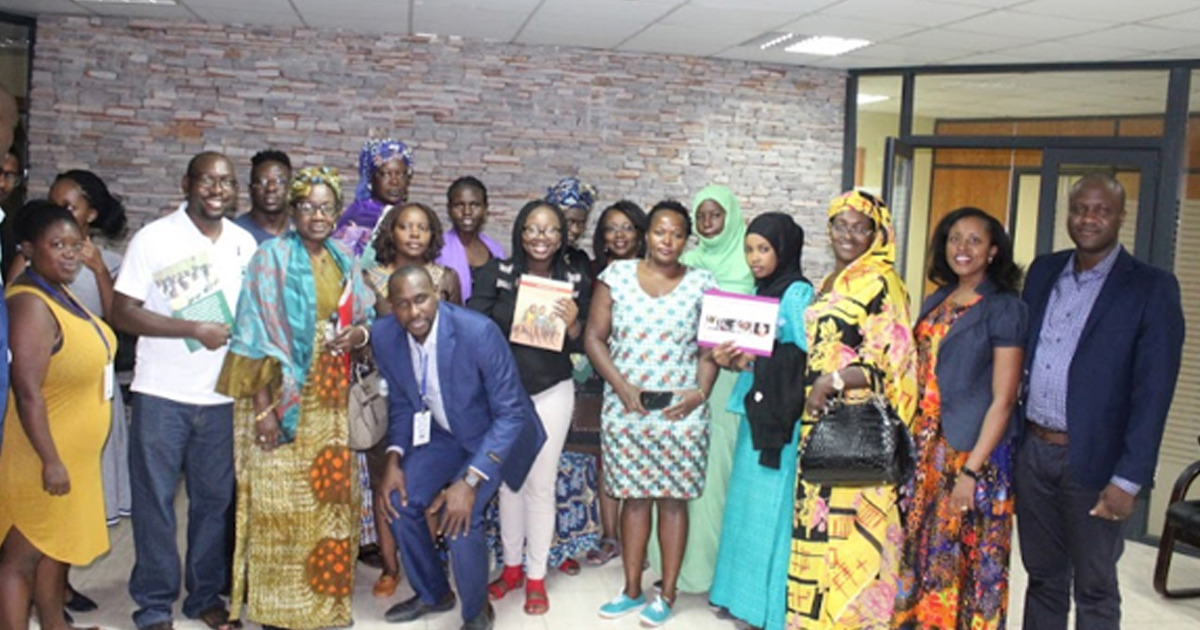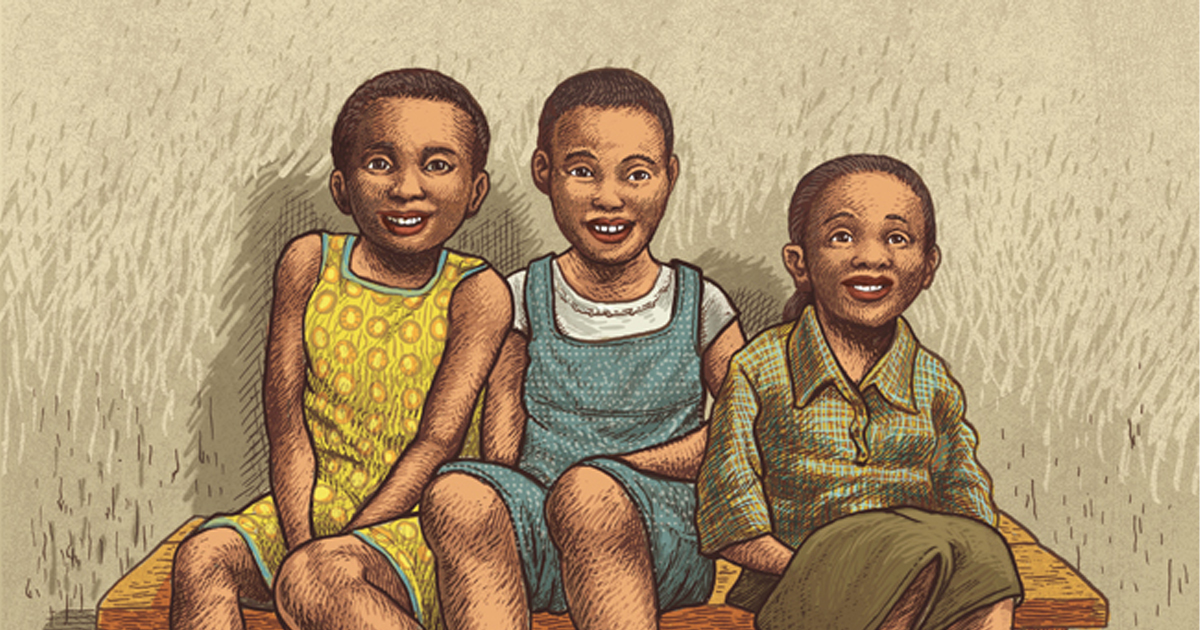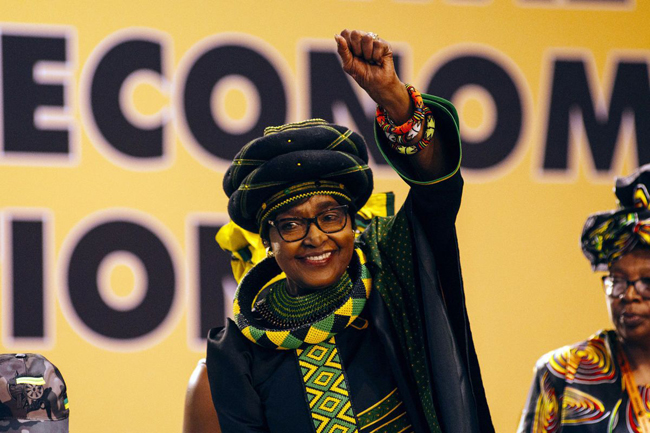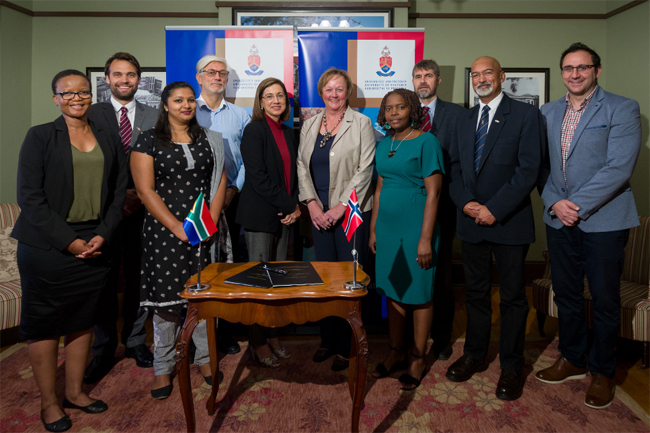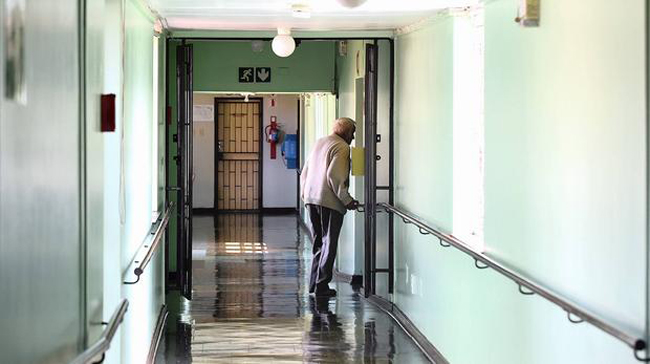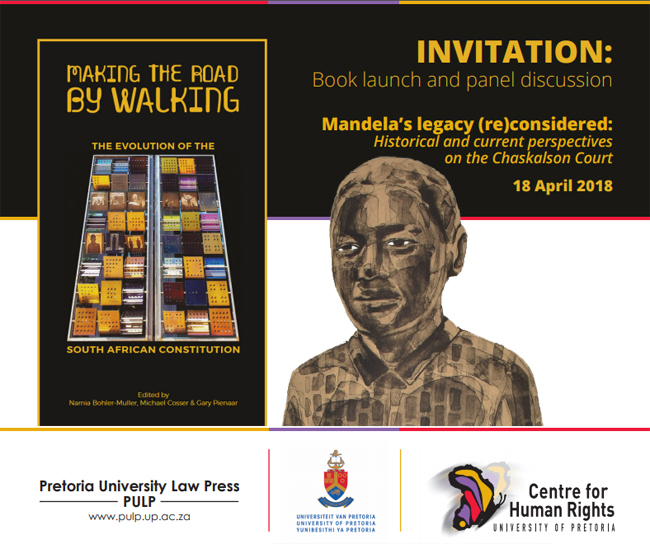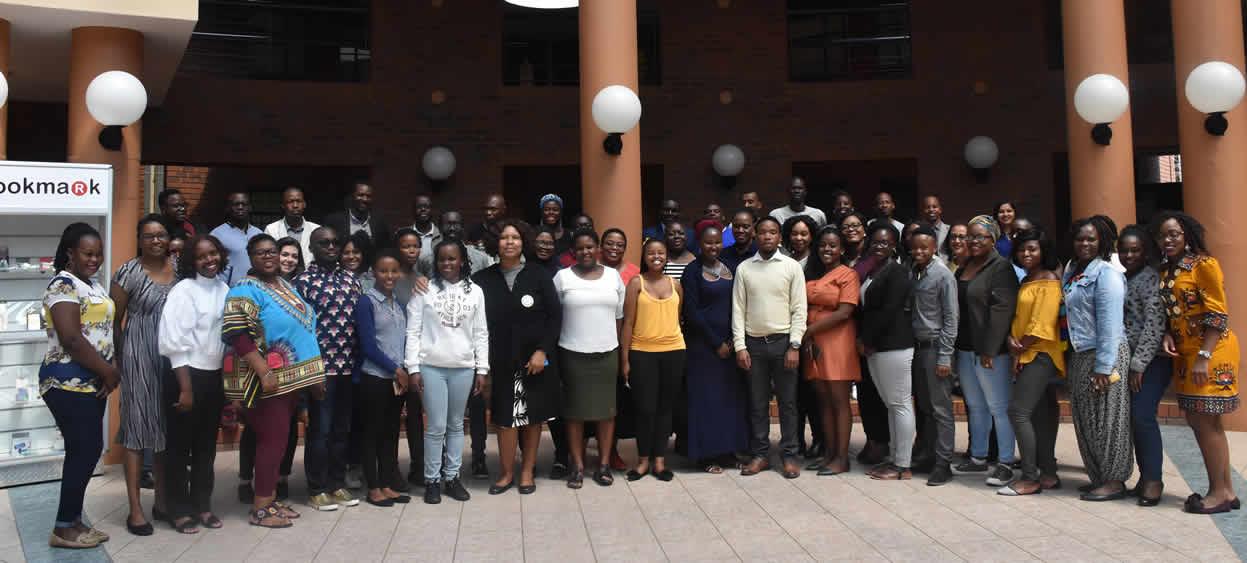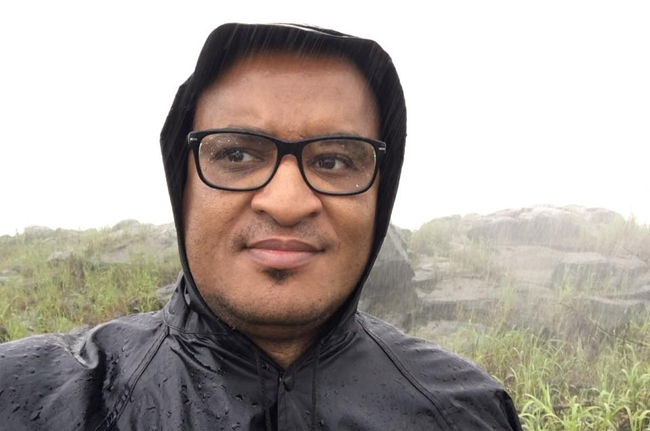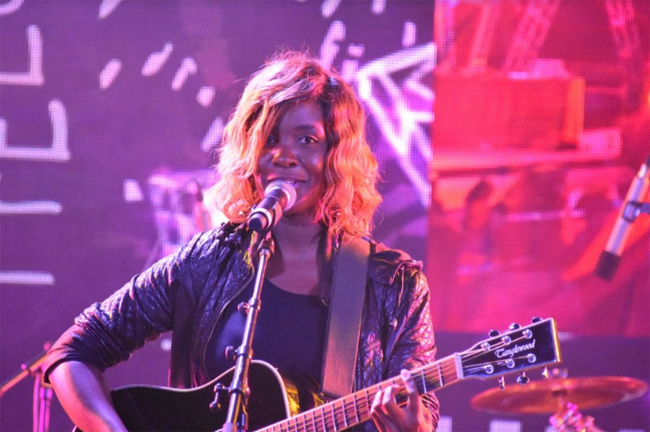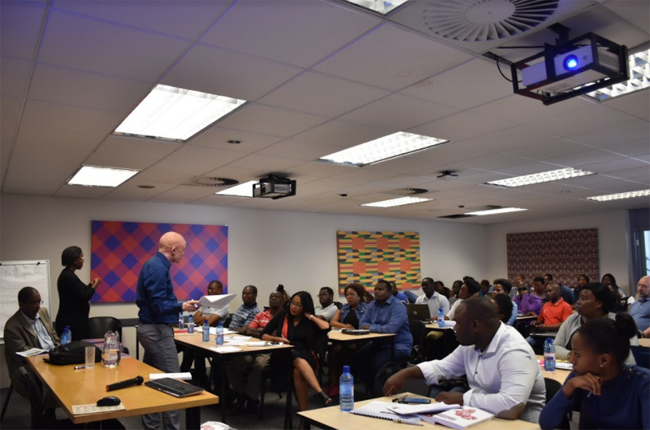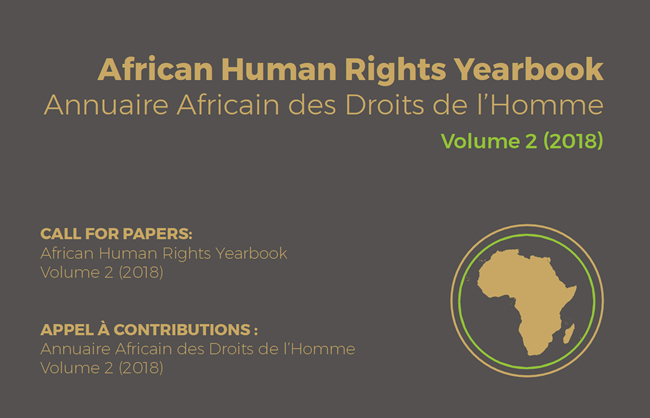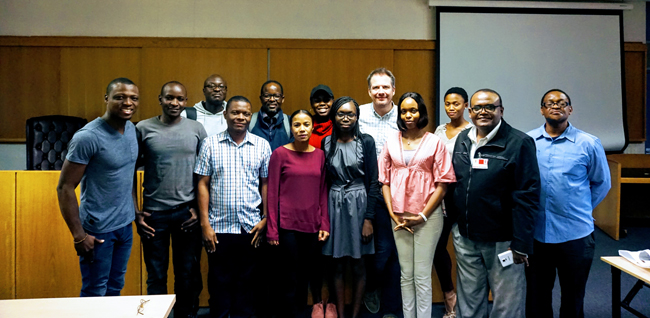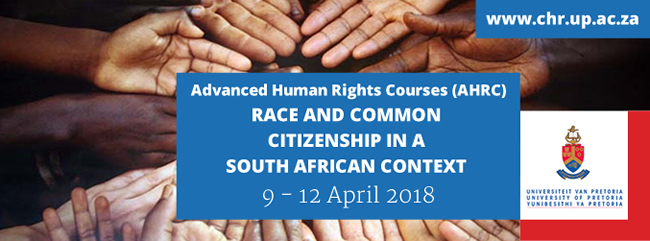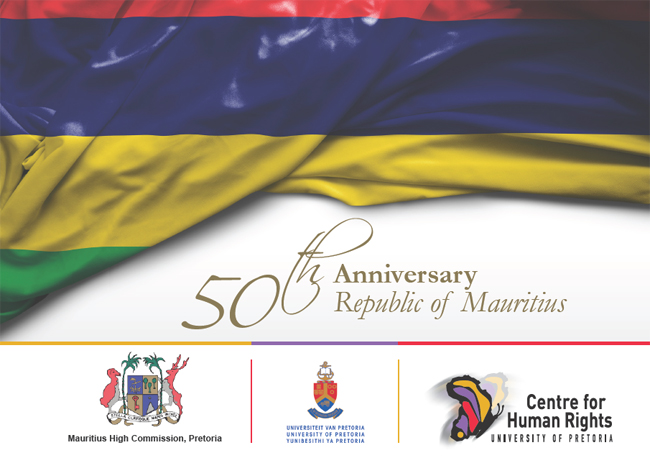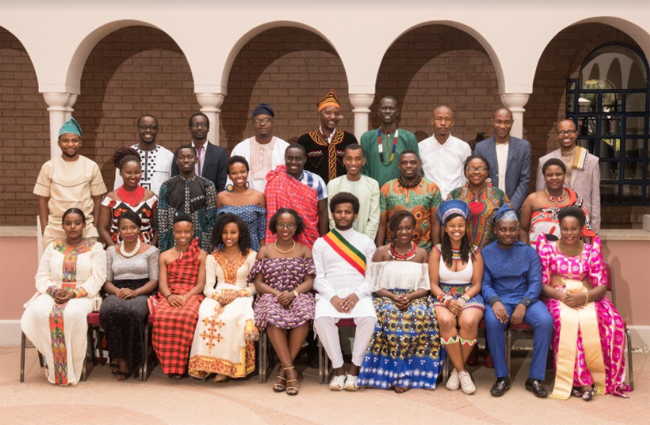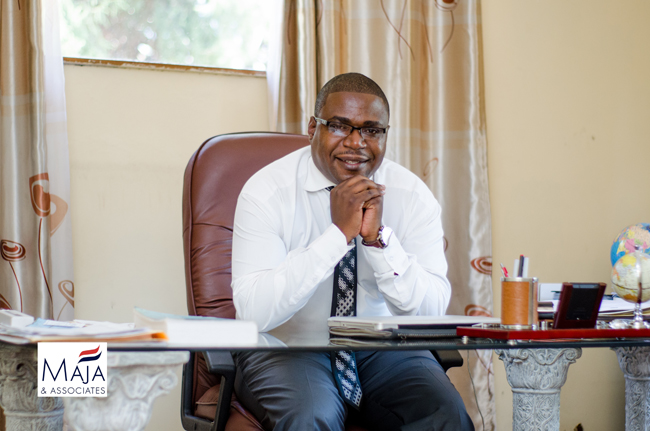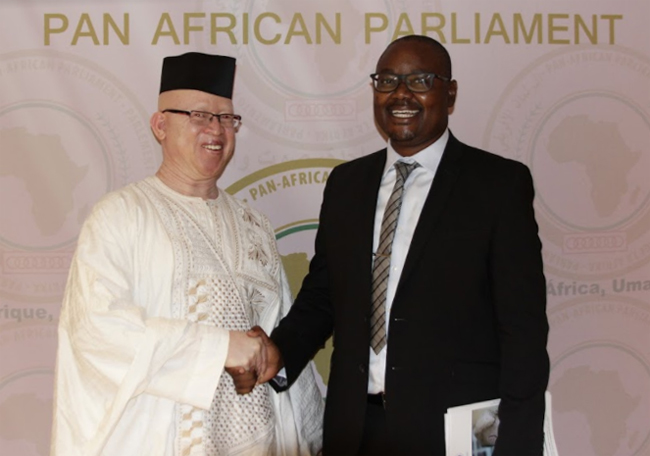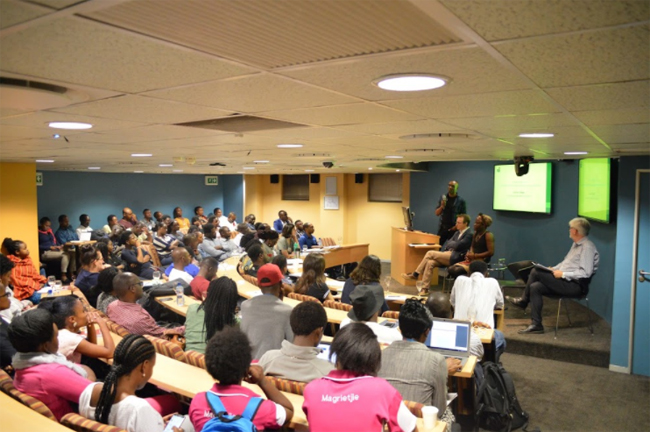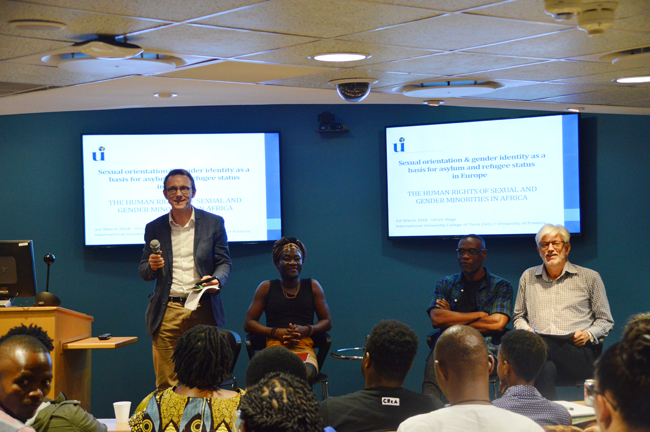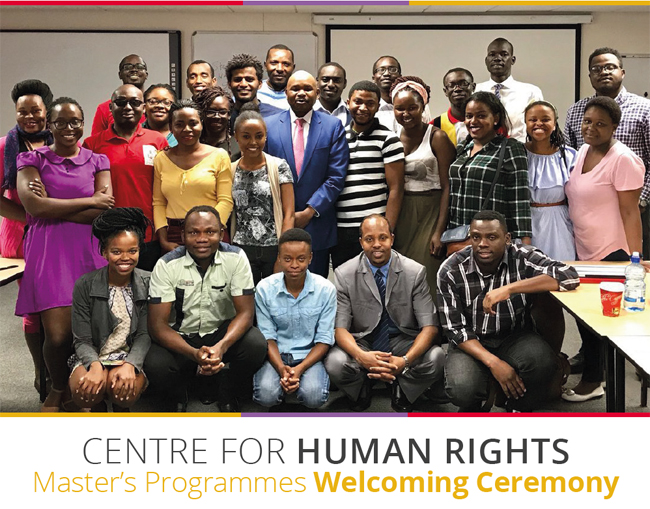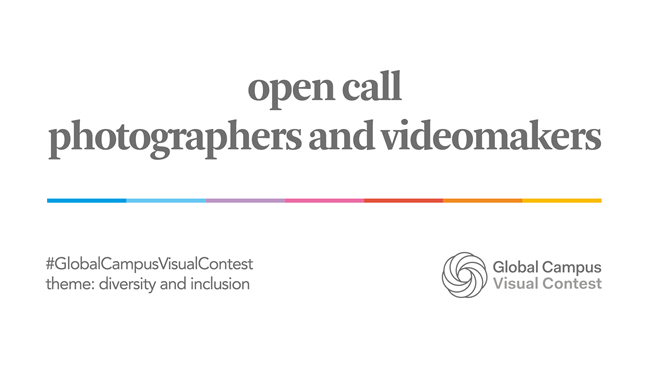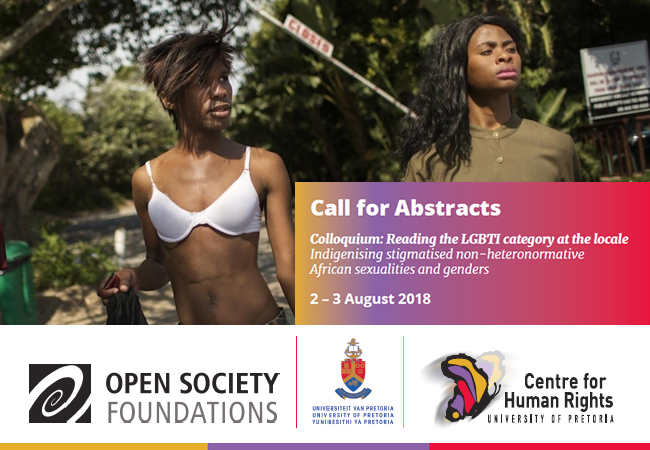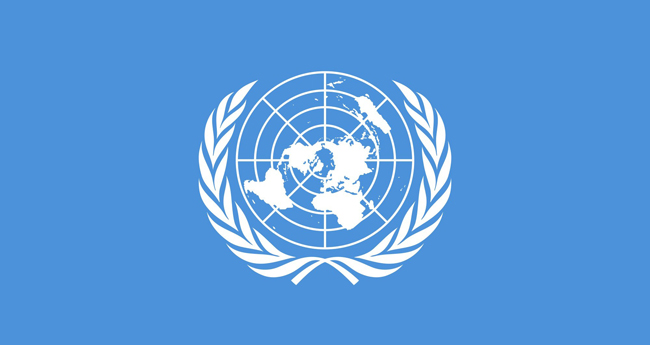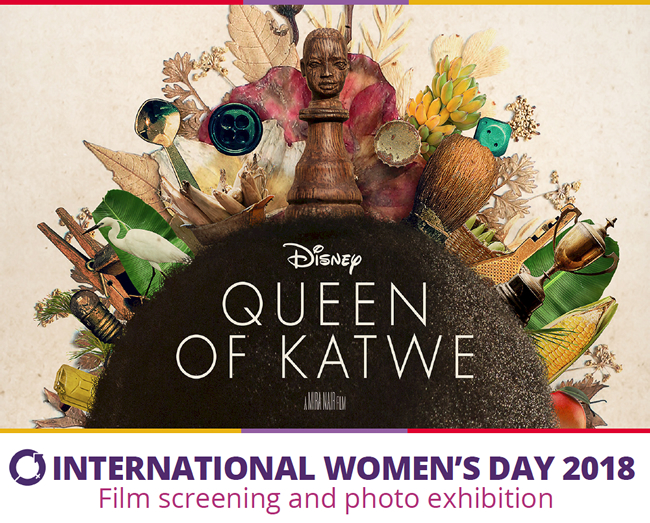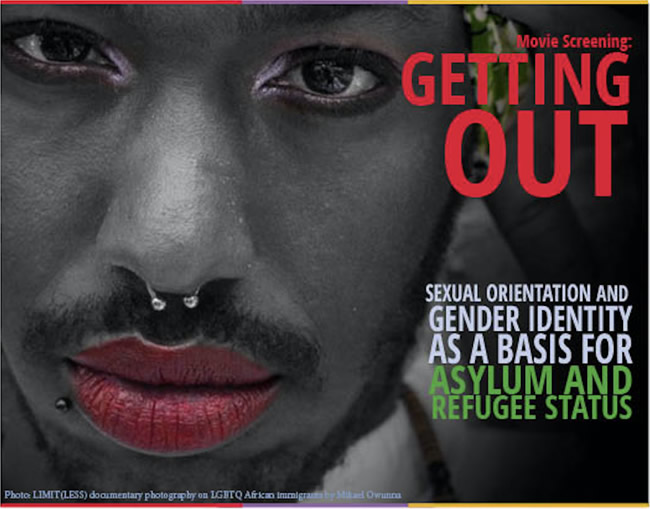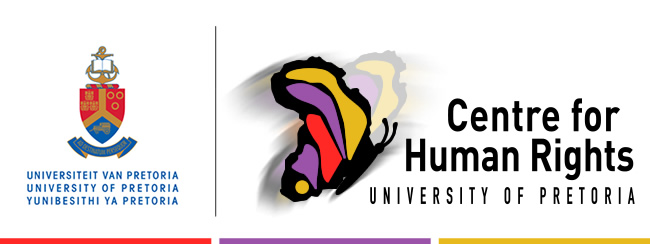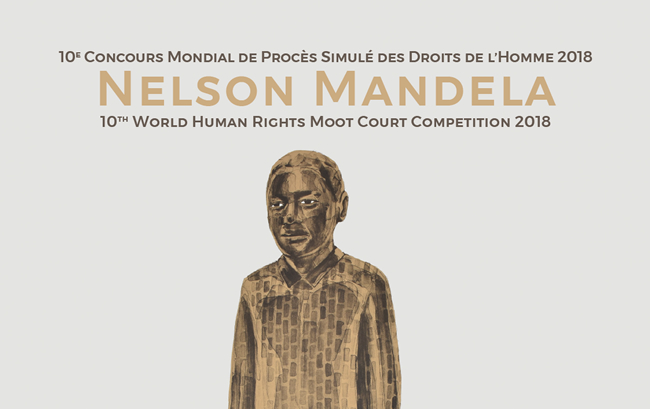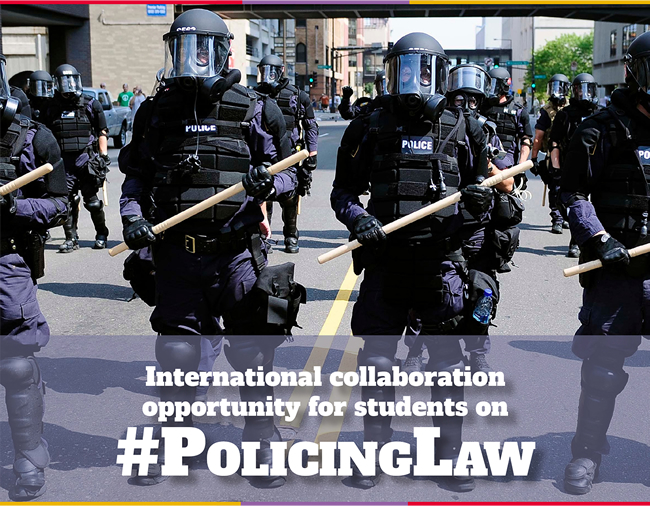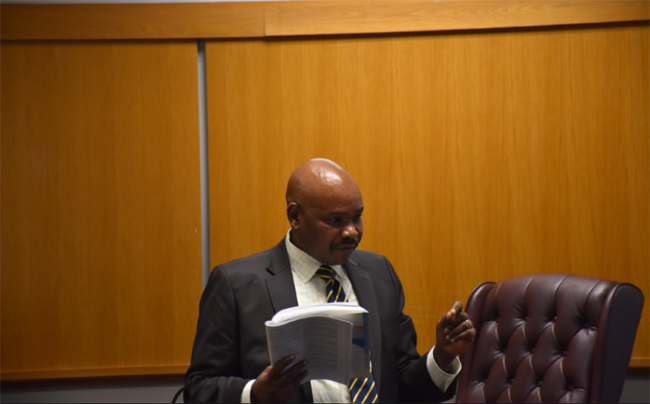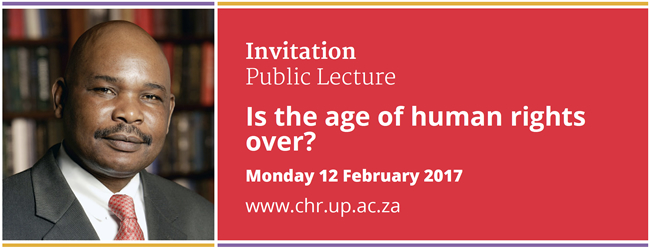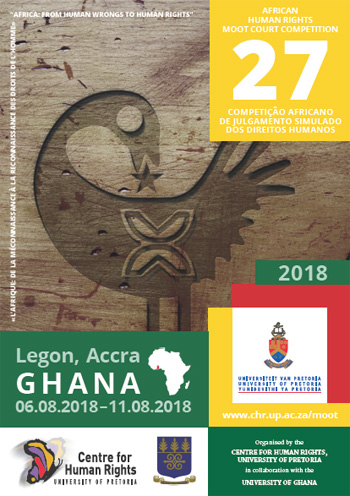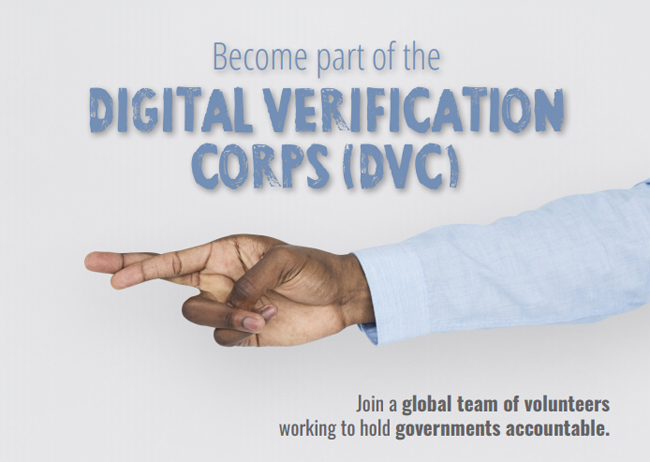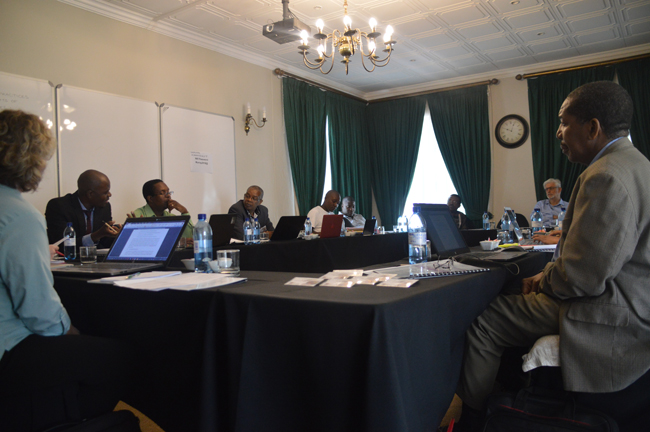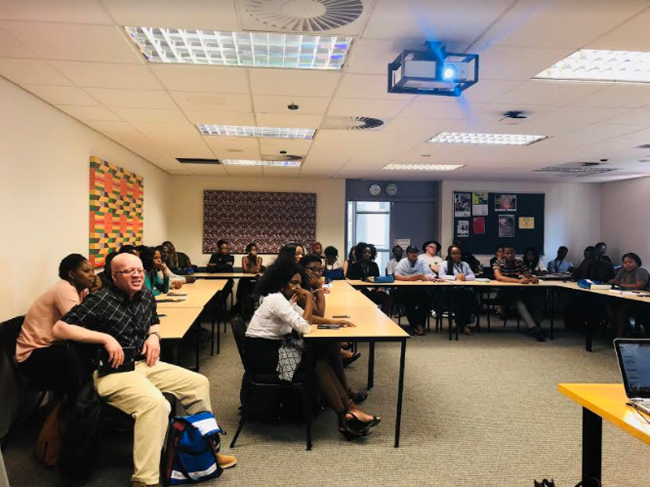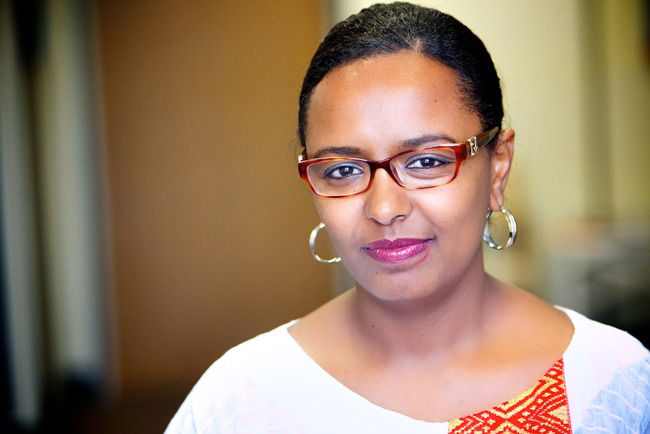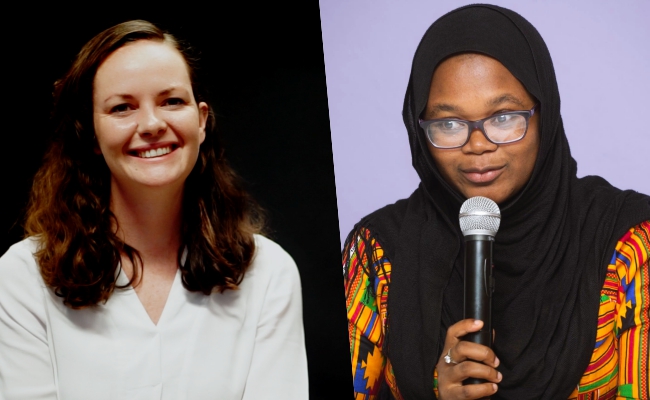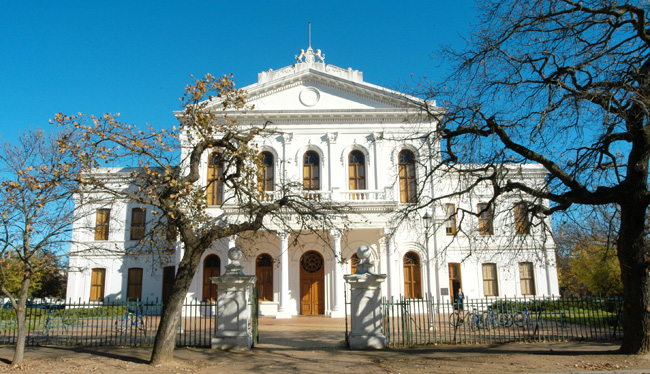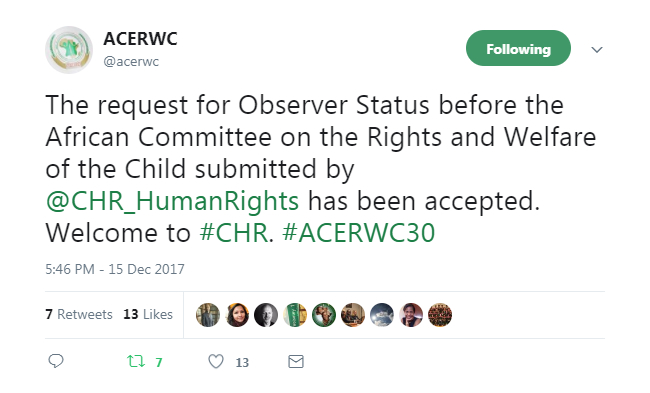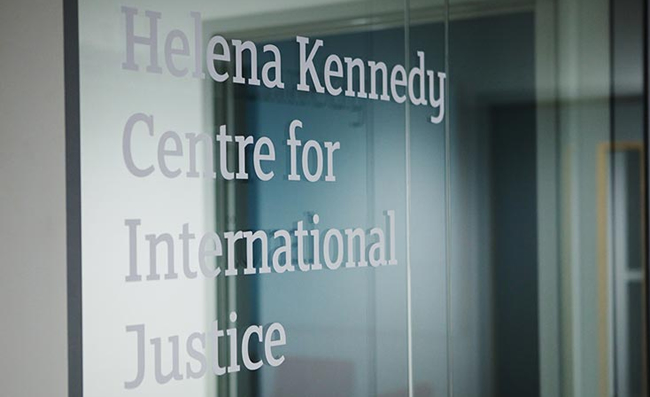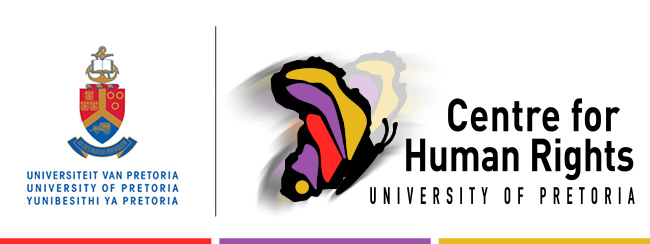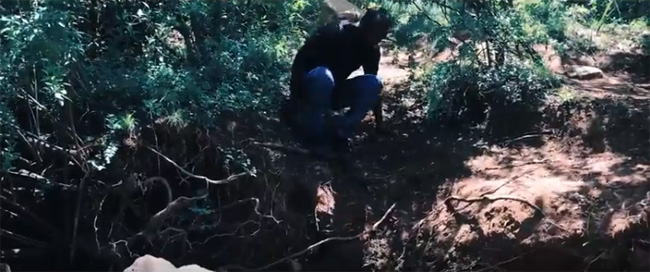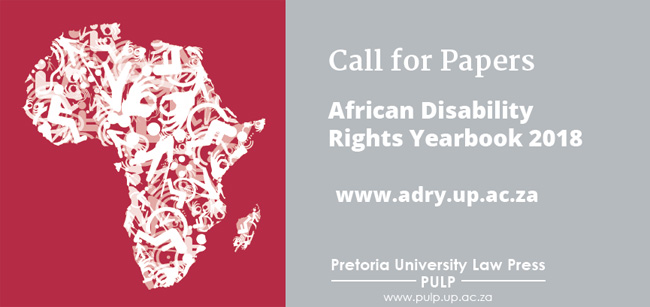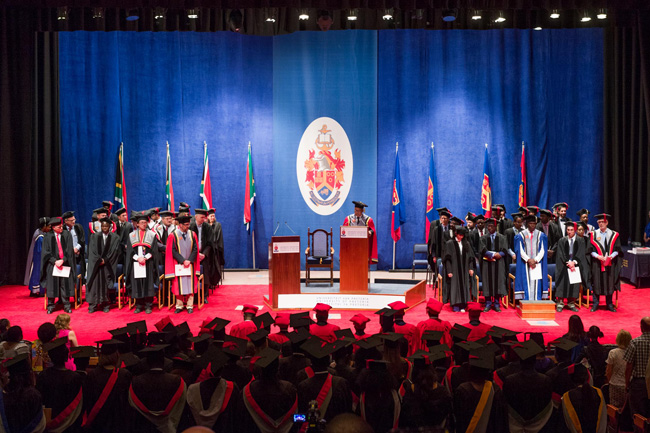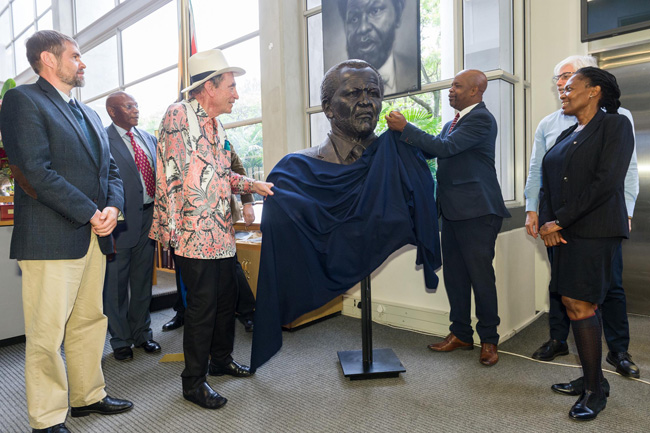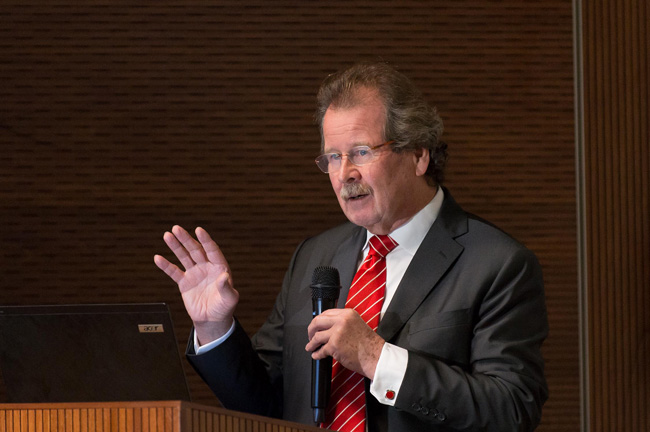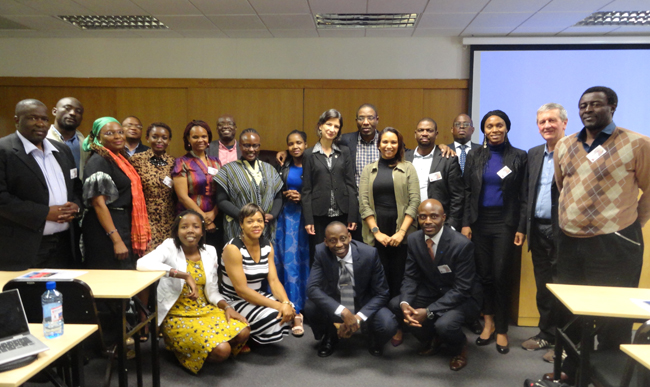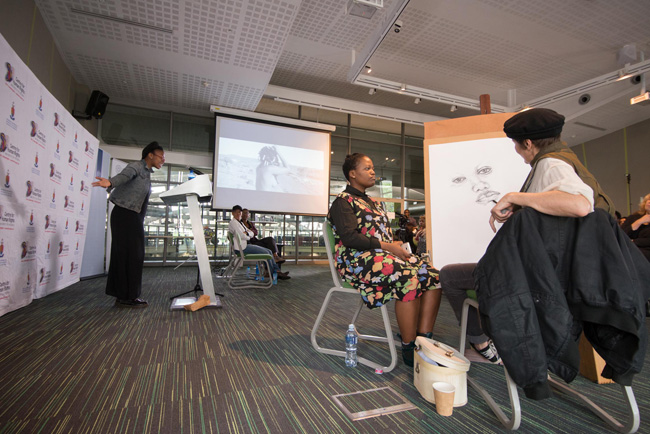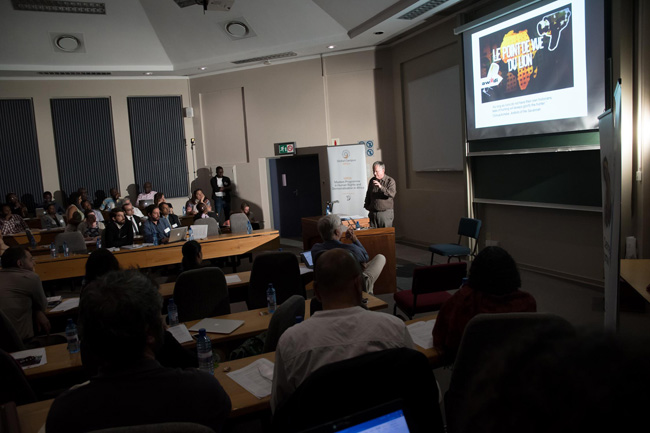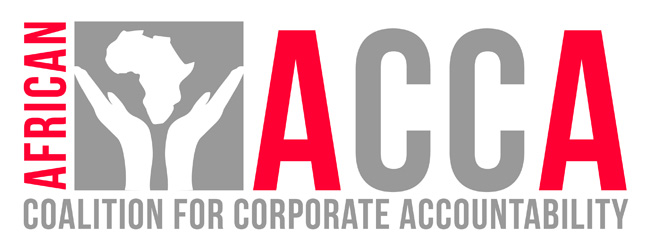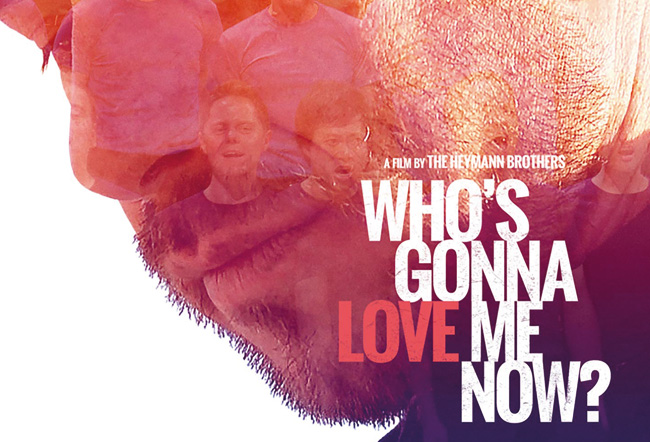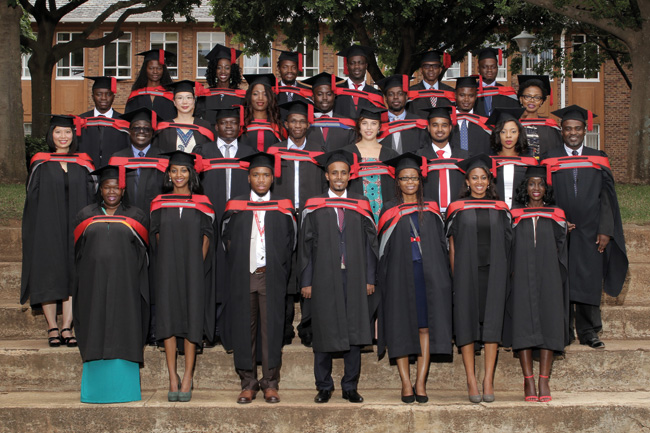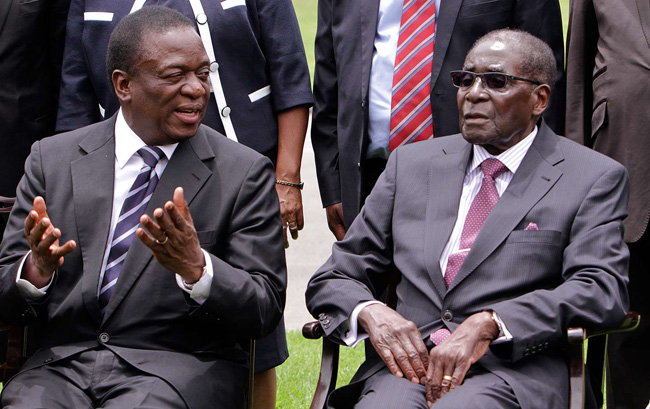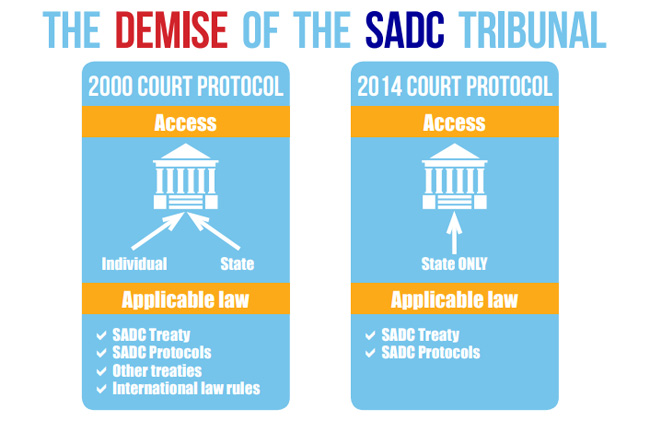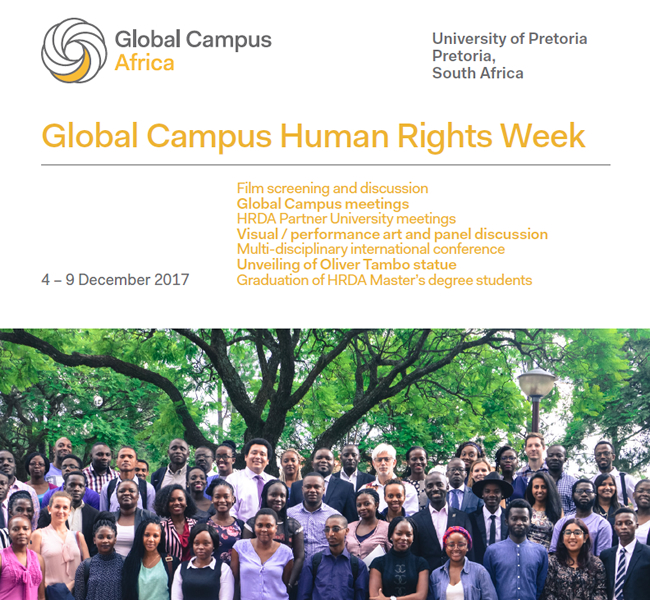- Details
The Centre for Human Rights, Faculty of Law, University of Pretoria, cordially invites you to a conference on addressing the barriers to implementation of inclusive education in the African region, which will be held from 6 to 7 November 2018.
- Details
After an illustrious opening ceremony, the first two sessions of the preliminary rounds of the African Human Rights Moot Court Competition started at the University of Ghana’s School of Law on 7 August 2018. The preliminary rounds involve all participating teams arguing the hypothetical case four times: twice for the Applicants, and twice as Respondent (the State).
- Details
The 27th edition of the African Human Rights Moot Court Competition started on an illustrious note, on 6 August 2018, at the University of Ghana, Accra, when H.E Nana Akufo-Addo, the President of Ghana officially opened the event.
The African Human Rights Moot Court Competition remains one of the largest gatherings of students, academics and judges around the theme of human rights in Africa. As in the past 27 years of the African Moot Court Competition, the Moot has brought together teams from all over the African continent – this year, there are 48 teams from 15 African countries.
- Details
On the 2 and 3 August, 2018, the Centre for Human Rights hosted a colloquium on sexual minority rights within Africa. The colloquium presented a platform for authors from around the continent to challenge and re-define how sexuality, identity, and LGBT advocacy have been constructed in Africa. In his welcoming address, Professor Frans Viljoen recognized the inspirational role of Professor Charles Ngwena in initiating and conceptualising the colloquium, and emphasises its multi-disciplinary nature. In giving background about the workshop, Professor Ebenezer Durojaye challenged the participants to interrogate how sexuality has been defined in Africa, outside of Western ideals, and outlined the aspiration of a publication following the colloquium.
- Details
(By Yolanda Booyzen)
If breastfeeding did not already exist, someone who invented it today would deserve a dual Nobel Prize in medicine and economics” – Keith Hansen, World Bank (2016).
At the beginning of every August, we celebrate World Breastfeeding Week (WBW). And every year we are reminded of the elixir-like qualities of breastfeeding and how it can address some of the world’s toughest challenges – infant mortality, malnutrition, food insecurity, poverty, obesity and environmental degradation. The 2018 WBW campaign focuses on how breastfeeding is the “foundation of life” and how there are links between breastfeeding and each of the 17 United Nations Sustainable Development Goals (SDGs).
- Details
The Centre for Human Rights - University of Pretoria (CHR), the Institute for Human Rights and Development in Africa (IHRDA), and the Legal and Human Rights Centre (LHRC) have sued the United Republic of Tanzania before the African Court on Human and Peoples’ Rights for its failure to ensure adequate protection of persons with albinism (PWAs).
The applicants filed the lawsuit on 25th July 2018, alleging that the State of Tanzania has failed to take sufficient measures to ward against the widespread persecution and discrimination perpetrated by the public against PWA.
- Details
![]() Download this statement
Download this statement
![]() Download this media advisory
Download this media advisory
![]() Download this flyer
Download this flyer
Civil society organizations in South Africa comprised of a broad collective of human rights and women’s rights organizations and Trade Unions add their voice to the call for immediate and decisive action towards ending violence against women in South Africa.
We call upon every woman in South Africa to join us on the 1st of August to march peacefully in protest of the violence with impunity targeted at women. We demand that the government of South Africa pay particular attention to the continued and increasing spate of violence against women and girls and take concrete measures to end the violation of women’s right to life, dignity and security of persons.
- Details
The School of Law, University of Venda, and the Centre for Human Rights, Faculty of Law, University of Pretoria, cordially invite you to the Annual Helen Kanzira Memorial Lecture.
The Keynote Address will be presented by The Honourable Justice Mandisa Maya President of the Supreme Court of Appeal, South Africa ‘Safe and voluntary motherhood a matter of human rights: We can do more’
- Details
On Friday 20 July 2018, students from the 14th Cohort of the Young African Leaders Initiative (YALI) (Civic Leadership Track) visited the Centre for Human Rights to learn more about the Centre’s work.
The afternoon kicked off with a presentation from the Disability Rights Unit. The students were introduced to the United Nations Convention on the Rights of Persons with Disabilities (CRPD) and given some information on how specific rights within the Convention may be implemented in practice, using the right to access to justice which is found in article 13 of the Convention as an example. Students learnt about the different types of disabilities and the barriers which people with each type of disability typically face in accessing justice. Solutions to these barriers were also explored in the form of accommodations which may be made to enable persons with disabilities to participate effectively in the criminal justice system and access justice on an equal basis with others.
- Details
Coinciding with the birth date of Nelson Mandela 100 years ago, the Nelson Mandela World Human Rights Moot Court Competition was held at the United Nations headquarters in Geneva, Switzerland. The University of Buenos Aires in Argentina emerged as winners, and the St. Thomas University in Canada, as runners-up in the final round of the competition.
A total number of 39 universities representing 24 countries from the 5 United Nations regions participated in the pre-final oral rounds of the competition, held in the human rights capital of the world. The Centre for Human Rights, University of Pretoria, annually organises this event, in collaboration with the United Nations Office of the High Commissioner for Human Rights. This year marked the tenth time the competition took place.
- Details
Today Africa, at least parts of it, celebrates the legacy of Nelson Mandela. He was a ‘great’ anti-apartheid activist, lawyer and South Africa’s first post-apartheid president.
Here in South Africa, I have navigated through some multi-ethnic and multi-racial social spaces where the conversation of ‘Who is Nelson Mandela?’ came up. I have a growing sense of that there are mixed feelings about him, what he represents and the sustainability of his legacy. It is difficult to completely grasp the emotional context of the ‘phenomenon’ that is Nelson Mandela.
- Details
The 10th edition of the Nelson Mandela World Human Rights Moot Court Competition is currently holding at the human rights capital of the world – Geneva, Switzerland. The 39 teams that are competing this year at the Palais des Nations made it after an initial round of regional contest across the 5 UN regions. Brazil has six universities at this year’s World moot which is the largest number from any country. India is next with 4 universities. While Kenya and Ukraine have 3 universities each.
This year’s moot is especially significant because not only does it mark the tenth year of the competition, it also coincides with the centenary celebration of the great Nelson Mandela – the man whom the moot is named after.
- Details
“Inequality can be done away with only by establishing a new society, where men and women will enjoy equal rights, resulting from an upheaval in the means of production and in all social relations. Thus, the status of women will improve only with the elimination of the system that exploits them….” Thomas Sankara
Since Sankara uttered these words, the African continent has made some strides towards eliminating the system that exploits and discriminates against women. One of these steps is the adoption of the Protocol to the African Charter on Human and Peoples’ Rights on the Rights of Women in Africa (Maputo Protocol) on 11 July 2003 in Maputo, Mozambique, it later came into force in 2005.
- Details
(By Dr Ashwanee Budoo)
The African Union has taken several initiatives to demonstrate its commitment to eliminating injustices against women in Africa. The most recent has been a meeting ahead of the African Union (AU) summit scheduled for later this year to highlight the continent’s commitment to gender equality.
Other examples include the African Women’s Decade (2010-2020), adopting the African Union Gender Policy and creating a fund for African women. In addition, the AU declared 2016 the year of human rights with a particular focus on the rights of women.
Fifteen years ago the AU adopted the Maputo Protocol under the African Charter on Human and Peoples’ Rights to boost the protection of women. Its implementation was meant to be overseen by the African Commission on Human and Peoples’ Rights, a human rights body set up under the African Charter. And the process was meant to be monitored by the Special Rapporteur on the Rights of Women in Africa.
Despite the protocol’s adoption, the violation of women’s rights is still widespread across the continent. The list is long. But some of the more egregious acts include violence against women, child marriage, gender-based discrimination and exploitative widow rites. The reasons for these range from culture, to tradition, ignorance, lack of education and patriarchy.
The problem is that the protocol’s provisions remain mere words on paper. This is because its potential has been stifled by a weak monitoring and evaluation function.
There is a solution to the problem: the creation of an institution whose sole purpose is to protect women’s rights. But it will require political will and a commitment to make the necessary funds available.
- Details
(By Dr Ashwanee Budoo)
Mauritius has been shaken by the news of the death of a 13-year-old pregnant girl who was married. Her death was particularly shocking because the country doesn’t have a high child marriage rate. It’s extremely low compared to countries like Niger where 76% of brides are children or the Central African Republic where the figure is 68%. In fact it’s so low that no recent studies have been done to estimate the number of child marriages in the country.
- Details
Registered undergraduate and postgraduate students from all tertiary institutions in Africa are invited to participate in the FACES 2018: African Student Cellphone Film Competition.
![]() Download the FACES 2018 Poster
Download the FACES 2018 Poster
![]() Download the FACES 2018 Official Rules (English)
Download the FACES 2018 Official Rules (English)
Submit your entry online (Deadline: 31 July 2018)
The purpose of the Competition is to encourage students from Africa to express themselves and to engage with issues of relevance to Africa, using available cellphone technology.
- Details
GENEVA (26 June 2018) – The UN Special Rapporteur on the situation of human rights in Eritrea expressed concern that patterns of violations identified over the past six years persist, namely arbitrary and incommunicado detention, indefinite military/national service amounting to forced labour and severe restrictions on fundamental freedoms.
In her fifth and final report to the Human Rights Council, Sheila Keetharuth expressed concern that the human rights violations she identified in her first and subsequent reports, as well as in those of the Commission of Inquiry in Eritrea remained unchanged.
- Details
On 13 June 2018, the Centre for Human Rights (the Centre) joined the Minister of Arts & Culture Nathi Mthethwa, Commissioner Nomasonto Mazibuko, Commissioner for Gender Equality and the Albinism Association of South Africa in the 5thcommemoration of the International Albinism Awareness Day. The theme for this year’s commemoration was “Shining Our Light to the World.”
Jehoshaphat Njau, Moyahabo Thoka and Maria Nantege from the Centre’s Disability Rights Unit attended the commemoration, held at the J. Khananda Primary School and Leonard Ntshuntshe Secondary School in eMalahleni (formerly Witbank), Mpumalanga Province.
- Details
The Centre for Human Rights, Faculty of Law, University of Pretoria with the support of the Embassy of the Kingdom of the Netherlands, cordially invites you to apply for the Capacity Building Workshop on Strategic Advocacy & Litigation targeted at the promotion and protection of the human rights of lesbians, gay, bisexual, and transgender persons in Africa.
- Details
On 16 June 2018, Africa commemorates the Day of the African Child 2018 under the theme “Leave No Child Behind for Africa’s Development”. This year’s theme aims to target children who are not benefitting from Africa’s growth and development. African countries are challenged to ensure that children are at the centre and not left behind in the drive towards sustainable economic development. This day is commemorated in memory of the Soweto student uprising, that began on June 16 1976, when students marched in protest against the poor quality of education they received and demanded to be taught in their own languages.
- Details
Celebrating the 70th anniversary of the Universal Declaration of Human Rights (UDHR), the Centre for Human Rights, Faculty of Law, University of Pretoria, is launching the UDHRat70 Multimedia Competition, with four creative categories, and a total amount of R32 000 in prizes. The Competition is open to University of Pretoria (UP) staff and students only. The winners will be announced at the Centre’s Graduation Ceremony on 7 December 2018.
![]() Download the Call for Submissions
Download the Call for Submissions
Click here to submit your entry via the online form
Visit the #UDHRat70 Multimedia Competition website
- Details
#CelebratingWomenWithAlbinism is a campaign by the Disability Rights Unit at the Centre for Human Rights, University of Pretoria.
The campaign aims to celebrate the achievements and to highlight the stories and experiences of women with albinism.The campaign was launched in 2018 on International Albinism Awareness Day on 13 June.
- Details
The Centre for Human Rights, Faculty of Law, University of Pretoria, is extremely concerned about the continuing human rights violations in the North-West and South-West regions of Cameroon, and the lack of international alarm and action about the situation. Available evidence strongly suggests that crimes against humanity have been and are being committed in the English-speaking regions of Cameroon.
- Details
In a landmark acknowledgement of the importance of the normative elaboration of the obligation of Member States with respect to the right of access to information in electoral processes, the African Commission on Human and Peoples’ Rights (African Commission) adopted the Guidelines on Access to Information and Elections for Africa (the Guidelines) on 10 November 2017, during its 61st Ordinary Session, in Banjul, The Gambia. To celebrate this milestone, the Guidelines were officially launched during the recently concluded 62nd Ordinary Session of the African Commission, which took place from 25 April to 9 May 2018 in Nouakchott, Mauritania, in a session presided over by the Special Rapporteur on Freedom of Expression and Access to Information in Africa (Special Rapporteur), Commissioner Lawrence Mute.
- Details
One of the mandates of the Implementation Clinic at the Centre for Human Rights, University of Pretoria, is to engage with the national actors in African States towards the implementation of African human rights decisions. Having identified Zimbabwe as one of the focus countries for the year, the Centre in collaboration with some local partners in Zimbabwe are organising a national dialogue and capacity building workshop to enable the environment crucial to the implementation of human rights decisions. On 24 May 2018, the Centre hosted a planning meeting with representatives from the Zimbabwe Lawyers for Human Rights (ZLHR), Zimbabwe Human Rights NGO Forum (ZHRF) and the Zimbabwe Human Rights Commission (ZHRC).
- Details
This video is part of an advocacy project undertaken by HRDA students of the 2018 Advocacy Clinic Group at the Centre for Human Rights, University of Pretoria. It forms part of an online campaign on the rights of intersex persons. The video captures the incredible life story of Dimakatso Sebidi, who is intersex and seeks to create awareness on intersex persons and their daily life experiences and challenges Intersex persons exist and have rights just like you and I. Join the #IAmIntersex campaign on Twitter and spread the word!
- Details
Experts from across Southern Africa attended a meeting at the University Pretoria on 30 May 2018 to explore ways in which more attention can be drawn to the plight of older women in the region, and in Africa. They called for African states to follow the lead of Lesotho, which is on the verge of formalising its ratification of the African Union’s Protocol on the Rights of Older Persons in Africa. .
- Details
On 18 May 2018, the Pan African Parliament (Parliament) adopted a Resolution on Persons with Albinism in Africa (Resolution). The Parliament is an organ of the African Union (AU), which was established to ensure that Africa takes full ownership and participation in the development and sustainable transformation of the continent. The Parliament sits in Midrand, South Africa and comprisesof 53 AU member states. The Parliament holds the mandate to issue resolutions and recommendations on key developmental and social issues affecting the African continent.
- Details
Following on from a two-day Round Table on ‘African Approaches to International Law’, held at the Centre for Human Rights, University of Pretoria, on 3 and 4 May 2017, a two-day Conference is scheduled for 5 and 6 December 2018, in Pretoria: the ‘Kéba Mbaye Conference on African approaches to international law, with a focus on international human rights law’.
![]() Download this call for abstracts in English
Download this call for abstracts in English![]() Download this call for abstracts in French
Download this call for abstracts in French
- Details
The Centre for Human Rights is spearheading a campaign on the rights of older women in Africa. This campaign seeks to strengthen advocacy around the rights of older women and to advocate for States to ratify the Protocol on the Rights of Older Persons.
- Details
On 16 May 2018 Ms Ikponwosa Ero, the UN Independent Expert on the enjoyment of human rights by persons with albinism addressed the Pan Africa Parliament during its Sixth Ordinary Session which ended on 18 May 2018.
- Details
The Centre for Human Rights, Faculty of Law, University of Pretoria invites you to a panel discussion on the protection of the rights of older women within the framework of the Protocol to the African Charter on Human and Peoples’ Rights on the Rights of Older Persons in Africa (Protocol on the Rights of Older Persons).
- Details
The Centre for Human Rights, Faculty of Law, University of Pretoria in collaboration with Norwegian Ministry of Foreign Affairs presented its annual Advanced Human Rights Course on Judicial Enforcement of Socio-Economic Rights in Africa from 14 to 18 May 2018. The course brought together over 60 participants from across Africa and Europe, mainly representing members of judiciary, civil society, National Human Rights Institutions, policy makers, government officials and academia.
- Details
The Centre for Human Rights, Faculty of Law, University of Pretoria, welcomes the adoption by the African Union Heads of State of a treaty on the rights of person with disabilities, the Protocol to the African Charter on Human and Peoples’ Rights on the Rights of Persons with Disabilities (African Disability Rights Protocol), on 30 January 2018. Africa now has a continental binding legal document protecting the human rights of persons with disabilities. The adoption of the African Disability Rights Protocol marks an important step towards recognising the equal dignity of persons with disabilities on the continent.
- Details
The Centre for Human Rights, Faculty of Law, University of Pretoria and the Global Emergency and Counterterrorism Institute cordially invites you to a public lecture by Peter Knoope on the ‘The lone wolves’ legion’.
- Details
Please join us for a panel discussion in celebration of the International Day Against Homophobia, Transphobia & Biphobia (IDAHOT). The theme for this year, Alliances for Solidarity, is a welcome reminder of the need for solidarity within the communities of sexual and gender minorities, as the rights of one specific group cannot be solidly secured if the rights of other groups are left unchallenged. ![]() Download this invitation
Download this invitation
- Details
The Pan-African Parliament (PAP) is an organ of the African Union (AU), which was established to ensure that Africa takes full ownership and participation in the development and sustainable transformation of the continent. PAP essentially operates in a consultative and advisory role mandated by the African Union.The Centre for Human Rights established a partnership with PAP through a Memorandum of Understanding which was signed on 27 October 2017. Key among the objectives of the partnership are the promotion of capacity building on human rights and democratisation in Africa, the increased visibility of PAP and the fostering of a strong interaction between PAP and Civil Society Organisations on the continent.
- Details
The Pretoria University Law Press (PULP) recently launched a collection of essays dealing with the lives and judgments of some of the first Constitutional Court Judges who were also all appointed by then President Nelson Mandela.The book, Making the road by walking, was launched at the Centre for Human Rights, Faculty of Law, University of Pretoria (UP), on 18 April 2018, as South Africa and the rest of the world honour the birth-year of the iconic Nelson Mandela 100 years ago. A panel discussion took place under the banner: “Mandela’s legacy (re)considered: Historical and current perspectives of the Chaskalson Court”.![]() Download the publication Making the road by walking
Download the publication Making the road by walking
- Details
Students on the Human Rights and Democratisation in Africa (HRDA) programme at the Centre for Human Rights, University of Pretoria, recently visited the African human rights icon Dr Vera Chirwa.
On 15 April 2018, Professor Frans Viljoen (Director), Johannes Buabeng-Baidoo (HRDA Programme Coordinator) and three students on the HRDA programme (Hawi Asfaw fromEthiopia, Reshoketswe Mapokgole from South Africa and Urerimam Raymond Shamaki from Nigeria), paid a courtesy visit to the home of Dr Vera Mlangazua Chirwa in commemoration of her selfless service to human rights in Africa as well as her support to the Centre.
- Details
The Queer Space Collective calls on you to participate in fostering the creation, telling, re-telling, archiving and accessibility of queer books and stories by donating used or brand new queer literature to the Queer Library for use by members of the University of Pretoria community.
- Details
The Centre for Human Rights, Faculty of Law, University of Pretoria, cordially invites you to a panel discussion on technology and democracy.![]() Download this invitation
Download this invitation
- Details
3 May 2018 Geneva - As the world marks Press Freedom Day on 3 May 2018, the UN Special Rapporteur on the situation of human rights in Eritrea, Sheila B Keetharuth, has called on the Government to end its crippling restrictions on freedom of the press.
“Journalists remain at risk of arbitrary arrest, imprisonment and enforced disappearance in efforts to intimidate and control them, and these human rights violations happen with total disregard for the fundamental right to freedom of expression and information, as well as individual rights,” - Ms. Keetharuth.
- Details
In commemorating the 15th anniversary of the Protocol to the African Charter on Human and Peoples Rights on the Rights of Women in Africa (Maputo Protocol), the Centre for Human Rights, University of Pretoria, is developing a photo exhibition and short video on the theme ‘Transwomen are women’. The exhibition and video will focus on the strength of Article 1(k) of the Maputo Protocol which provides that 'Women means persons of female gender, including girls'.
- Details
Statement by the Centre for Human Rights, Faculty of Law, University of Pretoria to the African Commission on Human and Peoples’ Rights, at its 62nd ordinary session, Nouakchott, Mauritania, 28 April 2018, on the situation of human rights in Africa![]() Download this statement
Download this statement
- Details
The Centre for Human Rights (the Centre) in partnership with Equality Now, Girls not Brides, Human Rights Watch and Plan International hosted a panel discussion on the recently adopted Joint General Comment to End Child Marriages and the Report on Child Marriage, commissioned by the African Commission on Human and People’s Rights (African Commission).
- Details
Bamako, Mali, 24 April 2018
Honourable Chairperson and members of the African Committee of Experts on the Rights and Welfare of the Child, I thank you for this opportunity to address you on the occasion of the 31st Ordinary Session of this honourable Committee. The Centre for Human Rights conveys its gratitude to the Committee for granting our application for observer status during the 30th Ordinary Session in Khartoum, Sudan in December 2017. We are pleased that granting us observer status will further facilitate our engagement with the Committee for the promotion and protection of children’s rights on the continent, especially through the full, effective and efficient implementation of the provisions of African Children’s Charter.
- Details
As South Africans, fellow Africans, and the world, finally bid farewell to Winnie Madikizela-Mandela, we at the Centre for Human Rights, Faculty of Law, University of Pretoria, join to honour the life of this remarkable woman. While it is a time of sadness, it is also a time of celebration.
We celebrate Winnie Madikizela-Mandela in solidarity with all other Africans. Few figures in modern Africa have had the power to unite and inspire as she had. Standing tall and proud, she made visible South Africans’ struggle for dignity, and ignited a common sense of purpose among Africans in all corners of the continent.
- Details
The Ambassador of the Royal Norwegian Embassy in Pretoria, Ambassador Trine Skymoen, and the Vice-Chancellor and Principal of the University of Pretoria (UP), Prof Cheryl de la Rey, today (10 April 2018) renewed the long-standing collaborative partnership between Norway and UP. Building on two previous periods of support, the Norwegian Ministry of Foreign Affairs, through its Embassy in Pretoria, provided a three-year grant to the University’s Centre for Human Rights, covering 2018 to 2020.
- Details
The Centre for Human Rights, Faculty of Law, University of Pretoria, is gravely concerned by recent allegations of precarious living conditions in certain residential homes for older persons. Reports of alleged abuse of older persons in the Lodewyk Spies Home, located in Pretoria, places a spotlight on some of the human rights violations that older persons face in residential care. The old age home is accused of neglecting residents, controlling the residents’ social grants cards, and depriving the residents of nutritious food. Older persons, inside and outside of residential care, face discrimination which has an impact on their prospects for employment, their healthcare treatment and their ability to make decisions about their own lives. The Centre calls upon the Department of Social Development to conduct regular investigations of all older person residential care facilities, as mandated by section 22 of South Africa’s Older Persons Act 13 of 2006.
- Details
A recent PULP publication, Making the road by walking, considers the contribution of eight of the Judges who served on the Constitutional Court headed by Chief Justice Arthur Chaskalson, and who were still alive and no longer served on the Court in 2013. They are Justices Ackermann, Goldstone, Kriegler, Mokgoro, O’Regan, Sachs, Skweyiya and Yacoob. They were all appointed by President Nelson Mandela. Making the road by walking is edited by three members of the Human Sciences Research Council’s Democracy, Governance and Service Delivery Programme (Narnia Bohler-Muller, Michael Cosser and Gary Pienaar).
- Details
The Centre for Human Rights, University of Pretoria held a one-week intensive short course on Women’s Rights in Africa from 26 to 29 March 2018. The course is part of a series of Advanced Human Rights Short Courses the Centre organises and offers to the members of the public. The course was attended by students of the Masters in Human Rights and Democratisation in Africa as well as practitioners from government officials, women’s rights advocates and activists, members of civil society and researchers. The course has also attracted and proved useful for cross-discipline practitioners such as medical doctors who often encounter various women’s rights concerns in their work.
- Details
The Centre for Human Rights has learnt with grave concern reports of the attack against Mr Ericino de Salema, a journalist and political commentator in Mozambique. According to reports, Mr de Salema was abducted on Tuesday 27 March 2018 and later found severely beaten and unconscious at a ring road in the Mutanhane area of the Maputo province in Mozambique. It is reported that his legs where repeatedly hit with an iron rod, in an apparent effort to break them. It is believed he remains unconscious and that he sustained multiple fractures to his feet, femur and arms. Mr De Salema’s abduction appears to be connected to his regular feature as a political commentator on Soico Televisão (STV) Sunday Programme ‘Ponto de Vista. In recent times, Mr de Salema has expressed views on a wide variety of politically sensitive issues.
- Details
From 23 to 25 March 2018, Constitution Hill in partnership with the Centre for Human Rights, University of Pretoria, alongside other civil society organisations presented the first edition of the Human Rights Festival. The Human Rights Festival was held in celebration of South African Human Rights Day (21 March), 21 years since the coming into effect of the South African Constitution and 70 years since the adoption of the Universal Declaration of Human Rights by the United Nations.
- Details
The Centre for Human Rights, University of Pretoria held a one-week intensive short course on Disability Rights in the African context from 12 to 16 March 2018. The course is part of a series of Advanced Human Rights Short Courses the Centre organises and offers to the members of the public. Over 60 participants from over 20 African countries enrolled and attended this year’s course. The participants included: persons with disabilities working in human rights, LLM/MPhil human rights students, Doctoral candidates working on disability rights, human rights activists, government officials, police officers, policy makers and distinguished Professors.
- Details
The African Court on Human and Peoples’ Rights, the African Commission on Human and Peoples’ Rights, and the African Committee of Experts on the Rights and Welfare of the Child are pleased to announce the call for articles for the Second Edition of the African Human Rights Yearbook (AHRY). The First Edition, which was published at the end of 2017, comprised 17 articles. This joint publication, which contains contributions in English and French, is initiated in the framework of the complementarity relationships between the three institutions. We are inviting abstracts for papers and case discussions that will propose groundbreaking academic contributions to the human rights discourse in Africa.
- Details
Undergraduate and postgraduate students at the University of Pretoria were exposed to the world of digital verification from 13 to 15 February 2018. Sam Dubberley, Manager of Amnesty International’s Digital Verification Corps (DVC) programme, facilitated a training, which was organised by the Centre for Human Rights, University of Pretoria. The sole purpose was to open up the verification work to a multi-disciplinary group of students who will then become part of a global team assisting researchers at Amnesty International to advance accountability for human rights violations.
- Details
The Centre for Human Rights, University of Pretoria, will host a one-week intensive short course on Race and Common Citizenship in a South African context from 9 to 12 April 2018.
- Details
On the occasion of the 50th anniversary of the Republic of Mauritius, the Mauritius High Commission in Pretoria, South Africa, in collaboration with the Centre for Human Rights, Faculty of Law, University of Pretoria, cordially invites you to a debate on the topic ‘Democracy is necessary for economic development’, presented by students of the Master’s in Human Rights and Democratisation in Africa (HRDA).
- Details
On Friday 16 March 2018 the Centre for Human Rights, University of Pretoria welcomed the 2018 cohort of its Master’s degree students. The welcoming ceremony included the launch of the highly anticipated Alumni Diaries, a colourful chronicle of the journey and impact of the Human Rights and Democratisation in Africa (HRDA) programme and its alumni from its inception in 2000 until 2017.
- Details
The Centre for Human Rights congratulates Dr Innocent Maja on his recent appointment as Dean of the Faculty of Law, University of Zimbabwe effective from 1 April 2018 and running for a period of four years.
- Details
The continued attacks perpetrated against persons with albinism on the continent has prompted the Centre for Human Rights in collaboration with the office of the United Nations Independent Expert on the enjoyment of human rights by persons with albinism and several organisations representing persons with albinism to appeal to the Pan-African Parliament to prioritise the rights of persons with albinism on the continent.
- Details
The Centre for Human Rights hosted the annual Advanced Human Rights Course on Sexual Minorities in Africa from 26 February 2018 to 2 March 2018 at the University of Pretoria, Hatfield campus. This course, which is sponsored by the Flemish Government, was attended by 61 participants from 17 African countries, as well as participants representing the Catholic University of Leuven, Belgium. Participants included LLM/MPhil students, lawyers, magistrates, members of the civil society and staff from State departments.
- Details
Granting asylum seekers refugee status on the basis of persecution on the grounds of sexual orientation in Africa – best practice or just best laws from South Africa?
Following a seminar organised by the Centre for Human Rights, which revealed the difficulties of asylum seekers in South Africa applying for refugee status on the basis of sexual orientation or gender identity, the Centre calls on the South African government to appoint trained professionals to process applications in a sensitive manner and in an environment that protects the privacy and dignity of applicants, with a view to achieving a humane yet thorough and expedited process.
- Details
You are cordially invited to Centre for Human Rights Master’s Programmes Welcoming Ceremony.
- Details
The Global Campus of Human Rights is glad to announce the launch of the fourth edition of the GC Visual Contest, open to photographers and video-makers, professionals and amateurs, from any part of the world.
- Details
The Centre for Human Rights, University of Pretoria, is convening a colloquium on 2 - 3 August 2018 and is calling for abstracts on non-heteronormative African sexualities and genders.
The colloquium has the following main themes:
- reading the LGBTI category at the African locale; and
- indigenising stigmatised non-heteronormative African sexualities and genders.
It is anticipated that papers presented at the colloquium will be reworked by authors with a view to their consideration for publication as chapters in an edited volume.
- Details
The Institute for International and Comparative Law in Africa, Faculty of Law, University of Pretoria, invites applications from individuals interested in pursuing a doctorate degree in law, specifically on the topic of the impact of the United Nations human rights treaties on the domestic level.
- Details
In celebration of International Women’s Day, the Centre for Human Rights, University of Pretoria, in collaboration with the Department of Library Services, cordially invites you to a screening of the film Queen of Katwe and the I am Woman photo exhibition.
- Details
The Centre for Human Rights, Faculty of Law, University of Pretoria cordially invites you to a Panel discussion - Sexual Orientation and Gender Identity as a basis for asylum and refugee status.
- Details
The Disability Rights Unit at the Centre for Human Rights, University of Pretoria wishes to invite applications for the following vacancy at the Centre for Human Rights (an academic department and a non-governmental organisation at the University):
Internship, Disability Rights Unit - (One post) (9 month contract appointment) - Centre for Human Rights
- Details
Students from all universities in the world are invited to participate in the prestigious Nelson Mandela World Human Rights Moot Court Competition in 2018. Les étudiants de toutes les universités du monde sont invités à participer au prestigieux Concours Mondial de Procès Simulé des Droits de l’Homme Nelson Mandela de 2018.
Invitations in all six of the official UN languages
![]() Invitation letter (English)
Invitation letter (English)![]() Invitation letter (French)
Invitation letter (French)![]() Invitation letter (Spanish)
Invitation letter (Spanish)![]() Invitation letter (Arabic)
Invitation letter (Arabic)![]() Invitation letter (Russian)
Invitation letter (Russian)![]() Invitation letter (Chinese)
Invitation letter (Chinese)
- Details
International collaboration opportunity for students on #PolicingLaw to engage in an international effort to collect national legislation on the use of force.
- Details
The Centre for Human Rights, University of Pretoria hosted a public lecture by renowned legal scholar Professor Makau Mutua on 12 February 2018. Prof Mutua is a distinguished Professor at the Floyd H. and Hilda L. Hurst Faculty Scholar at the State University of New York Buffalo Law School. The public lecture raised the question whether the age of human rights is over. It was premised on the central argument that while human rights and the use of the ‘language of rights’ have been a phenomenal success, it has lost the ability to coalesce action against human rights atrocities. Unfortunately, no new discourses have emerged to take the place of human rights. What is needed is a new moral language to fill the vacuum left by human rights.
- Details
The Centre for Human Rights, University of Pretoria is pleased to announce the start of a comprehensive study into the impact of the United Nations (UN) human rights treaty system in 20 countries around the world.
- Details
The Centre for Human Rights, Faculty of Law, University of Pretoria cordially invites you to a Public Lecture under the theme - "Is the age for human rights over?"
- Details
The African Human Rights Moot Court Competition is the largest gathering of students, academics and judges around the theme of human rights in Africa. This annual event brings together all law faculties in Africa, whose top students argue a hypothetical human rights case as if they were before the African Court on Human and Peoples’ Rights.
The Competition continuously prepares new generations of lawyers to argue cases of alleged human rights violations before the African Court.
Since its creation in 1992, 150 universities from 50 African countries have taken part in this permanent fixture on the Africa legal education calendar. The Moot has been a catalyst for the establishment of the leading programmes in the field of human rights teaching and research in Africa.
- Details
Join a global team of volunteers working to hold governments accountable. Learn skills that will enable you to authenticate social media posts, separating truth from lies.
- Details
On 29 and 30 January 2018, the Centre for Human Rights, Disability Rights Unit convened a two-day colloquium for emerging scholars in the disability rights field. In his welcoming address, Professor Frans Viljoen stated that the focus of the colloquium, was on developing theoretical and practical skills for academic writing in disability rights as they apply to the African region. Further explaining the rationale behind the colloquium Professor Charles Ngwena, said that the colloquium was aimed at providing emerging scholars in the disability rights field with a forum for developing a paper in progress into a publishable article for submission to African Disability Rights Yearbook (Yearbook).
- Details
On 25 January 2018, the Centre for Human Rights hosted yet another cohort of Young African Leaders Initiative (YALI) Southern Africa scholars for an afternoon of discussions on violence against women and the rights of sexual and gender minorities. The discussion started with introductions from Ms Patience Mungwari Mpani, Manager of the Women’s Rights Unit and Mr Geoffrey Ogwaro, Manager of the SOGIE Unit, on the work of their respective units.
- Details
The Centre for Human Rights wishes to congratulate Ms Meskerem Geset Techane, an alumna of the Class of 2011 of the LLM/MPhil in Human Rights and Democratisation in Africa (HRDA) programme, who was recently appointed into the United Nations Working Group on the issue of discrimination against women in law and in practice (Working Group). She is among four other experts that make up the Working Group.
- Details
Every year, the Vera Chirwa award is given to an alumnus or alumna of the LLM/MPhil in Human Rights and Democratisation in Africa (HRDA) programme in recognition of their contributions to the advancement of human rights.
On 8 December 2017, Melanie Smuts (Class of 2012) and Musu Bakoto Sawo (Class of 2014) were jointly awarded the prize for their groundbreaking work in South Africa and The Gambia respectively.
Melanie’s commitment to improved access to quality education in South Africa through her Streetlight Schools formed the basis for her selection for the prize. While Musu was awarded the prize in recognition of her relentless commitment towards the eradication of harmful traditional practices such as Female Genital Mutilation in The Gambia.
As co-recipients of the 2017 Vera Chirwa Award, Melanie and Musu will be working on a human rights campaign with the Centre for Human Rights, amongst other things aimed at supporting the work that they do.
- Details
The Organisers of the Stellenbosch Annual Seminar on Constitutionalism in Africa (SASCA) are pleased to announce the call for papers for the Sixth Stellenbosch Annual Seminar on Constitutionalism in Africa (SASCA 2018) which will be held in Stellenbosch (South Africa) from 4 -7 September 2018.
- Details
During the 30th session of the African Committee of Experts on the Rights and Welfare of the Child (African Children’s Committee) held in Khartoum, Sudan, from 6 to 16 December 2017, the African Children’s Committee granted observer status to the Centre for Human Rights.
- Details
The pro-bono International Human Rights Clinic at the Helena Kennedy Centre for International Justice (UK) is accepting submissions from human rights activists who would like assistance filing a case before the African Commission on Human and Peoples' Rights.
- Details
The University of Pretoria wishes to invite applications for the following vacancy at the Centre for Human Rights (an academic department and a non-governmental organisation at the University):
CALL FOR APPLICATIONS:
Project Co-ordinator / Researcher, Democracy and Transpartency Unit - (One post) (12 month contract appointment) - Centre for Human Rights
Click here to view the vacancy and to apply on the University of Pretoria system
- Details
The Advocacy Unit of the Centre for Human Rights has made a short film in response to the shocking slave trade of migrants recently uncovered through a CNN investigative report.
Through this video, we call on the international community to double its efforts in ensuring that the rights of migrants are protected.
- Details
TheAfrican Disability Rights Yearbook (ADRY) is calling for papers for consideration for publication in Section A of the ADRY in 2018. The ADRY publishes once a year with a focus on disability rights issues and developments of contemporary concern to persons with disabilities on the African continent. It comprises three sections – Section A containing doctrinal articles and for which we are calling for papers; Section B containing country-focused overviews of developments in disability rights in selected African countries; and Section C containing brief overviews of developments at the African regional and sub-regional levels.
- Details
More than 50 Master’s graduates
At the University of Pretoria's graduation ceremony on 8 December more than 50 students graduated with a Master's degree from the following Master's programmes organised by the Centre for Human Rights:
- LLM International Trade and Investment Law in Africa (TILA) (23 students graduating; two with distinction)
- LLM/MPhil Human Rights and Democratisation in Africa (HRDA) (organised in collaboration with 13 partner universities across the African continent; 27 students graduating, a record number of eight students with distinction)
- LLM/MPhil Multidisciplinary Human Rights (two students graduating)
- LLM/ MPhil Sexual and Reproductive Rights in Africa (one student graduating)
- Master’s by research (one student graduating)
- Details
On Friday, 8 December 2017, the Faculty of Law at the University of Pretoria commemorated the legacy and life of Oliver R. Tambo (1917 – 2017) with the unveiling of a bust of the late leader and the launch of a book written by retired Constitutional Court Justice Albie Sachs titled Oliver Tambo's dream in the OR Tambo Law Library.
- Details
Democracies are fragile. Now, more than ever, fake news, populist politicians and disenchanted voters are putting this fragility to the test. Against this backdrop, the Centre for Human Rights (Centre), Faculty of Law, University of Pretoria, on 7 December hosted a one-day international conference on the theme ‘Democracy Under Threat’.
- Details
For over 35 years since the right to development gained formal recognition as a human right, it has remained the subject of a highly politicised debate. Unfortunately, as former UN High Commissioner for Human Rights, Navi Pillay noted on the occasion of the commemoration of the 25th Anniversary of the Declaration on the Right to Development in 2011, the politicised debate ‘has done little to free the right to development from the conceptual mud and political quicksand in which it has been mired all these years’. Conceptually, the right to development entails concrete action to ensure its realisation. Following the universal recognition of the right to development in the Vienna Declaration and Programme of Action in 1993 and the undertakings under other international instruments to make its realisation a reality, it is crucial to determine to what extend these commitments have been actualised.
- Details
To set the scene for the forth-coming International Human Rights Day slated for 10 December 2017, the Centre for Human Rights in collaboration with the Embassy of the Netherlands and Village Verbals hosted ‘The body that takes pride’ a panel discussion with visual and performance art which narrowed in on the themes of the rights of women and LGBTIQ persons. The star-studded panel was comprised of the Natalia Molebatsi, Nondumiso Msimanga, Beverly Ditsie and Prof Tiffany Willoughby-Herard.
- Details
The Global Campus Human Rights Week is held from 4 to 9 December 2017 in Pretoria. The event is organised by the Global Campus of Human Rights / European Inter-University Centre for Human Rights and Democratisation (EUIC) in partnership with the Centre for Human Rights, University of Pretoria. The first even on the agenda was a seminar on African cinema and human rights. Before the seminar, the Global Camp made several presentations, introducing all the regional programmes. These presentations comprised of sub-presentations made by delegates from the 7 branches of the Global Campus of Human Rights: Arab World, Europe, South East Europe, Latin America Caribbean, Caucasus, the Asia Pacific and Africa.
- Details
The following vacancy is available: Terms of Reference
- Details
The Centre for Human Rights, University of Pretoria, in collaboration with the Global Campus of Human Rights cordially invite you to a multi-disciplinary international conference on the theme ‘Democarcy under threat’.
- Details
The Centre for Human Rights, University of Pretoria, in collaboration with the Global Campus of Human Rights, Cinema Human Rights and Advocacy, Irish Centre for Human Rights, NUI Galway and the Kingdom of the Netherlands cordially invite you to film screenings, presentations and discussions on African cinema and human rights.
- Details
The Centre for Human Rights, Faculty of Law, University of Pretoria cordially invites you to its Master’s degree graduation ceremony. This graduation ceremony is hosted annually on or around 10 December to celebrate International Human Rights Day.
- Details
(By Prof Charles Ngwena)
What seemed unimaginable has happened. After an uninterrupted ‘reign’ of 37 years, Robert Mugabe, the de facto emperor of Zimbabwe, has ‘resigned’ from office. There has been genuine jubilation not least among those who have been at the receiving end of Mugabe’s increasingly despotic, corrupt and dysfunctional governance – the majority of Zimbabweans. Emmerson Mnangagwa has taken office as Mugabe’s successor. It is a historic moment. Since attaining independence in 1980, Zimbabweans have only known Mugabe as their political supremo – initially as prime minister and latterly as president. The fact of Mugabe’s departure from office, alone, has raised hopes that we might be at the cusp of a compassionate, fairer, humane and democratic Second Republic. At the same time, the clouds are pregnant with contradictions, counselling us not to throw caution aside even as we pine for change. Why is this?
- Details
On 18 November 2005, the Southern Africa Development Community Tribunal (SADC Tribunal) was inaugurated as a judicial body established to resolve disputes between Southern African states and between states and their citizens. At that time, there were many celebrations around the inauguration of the Tribunal because a regional court with the power to hear human rights cases is a critical mechanism in the pathway to justice after exhaustion of local remedies. However, the celebrations were short-lived. In 2009, Zimbabwe challenged the legitimacy of the Tribunal stating that it had not been established according to international law norms. This led to suspension of the Tribunal by decision of SADC leaders, in 2010.
- Details
The Global Campus Human Rights Week will be held during the week from 4 to 9 December 2017 in Pretoria, South Africa. The events will feature a film screening and discussion on African cinema and human rights, meetings of institutional and governance structures of the Global Campus, a visual / performance art and panel discussion on the rights of women and LGBTIQ persons, a multi-disciplinary conference on contemporary and future challenges to democracy worldwide and the graduation of the 18th cohort of students on the Master’s degree programme in Human Rights and Democratisation in Africa. The event is organised by the Global Campus of Human Rights in partnership with the Centre for Human Rights, University of Pretoria. The conference is realised thanks to the European Union.
- 27th African Human Rights Moot Court Competition to be held in Ghana
- Disability Rights Scholarship Programme Alumni meet to discuss prospects for academic advancement and regional and country progress on disability rights
- Partner universities reflect on the status of disability inclusive policies and practices at their universities
- Opening the 5th Annual African Disability Rights Conference with a keynote address from Dr Samuel Kabue

